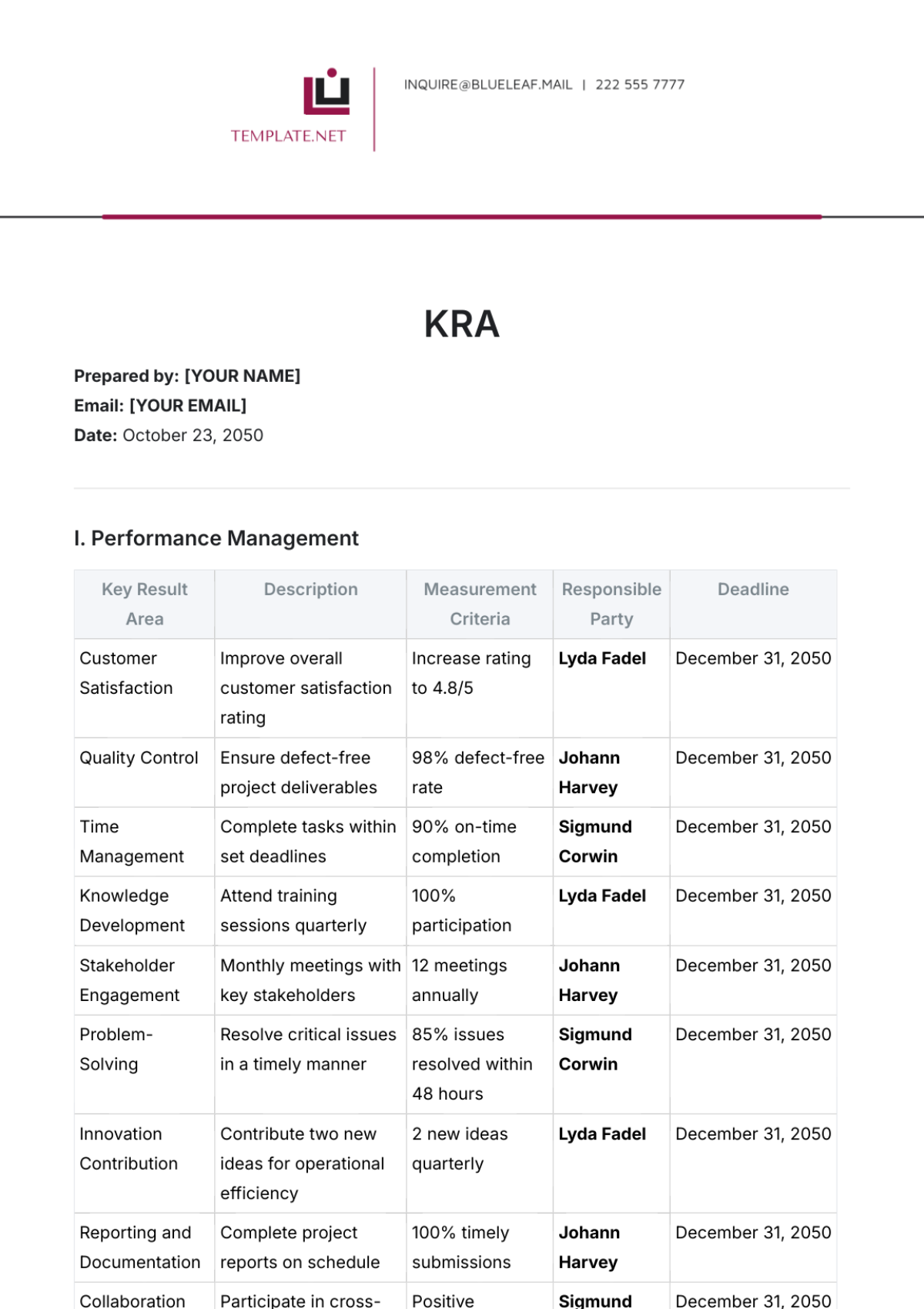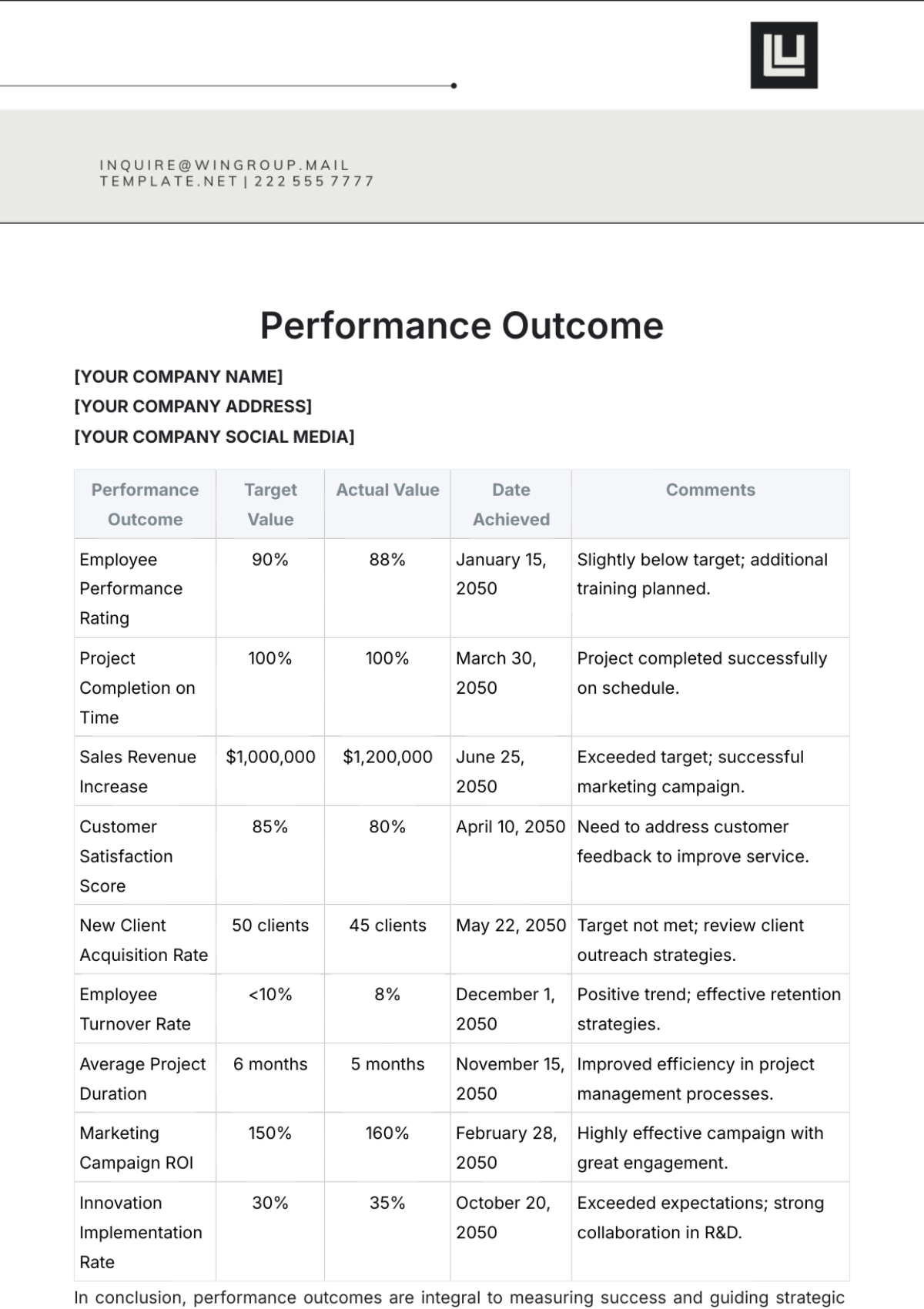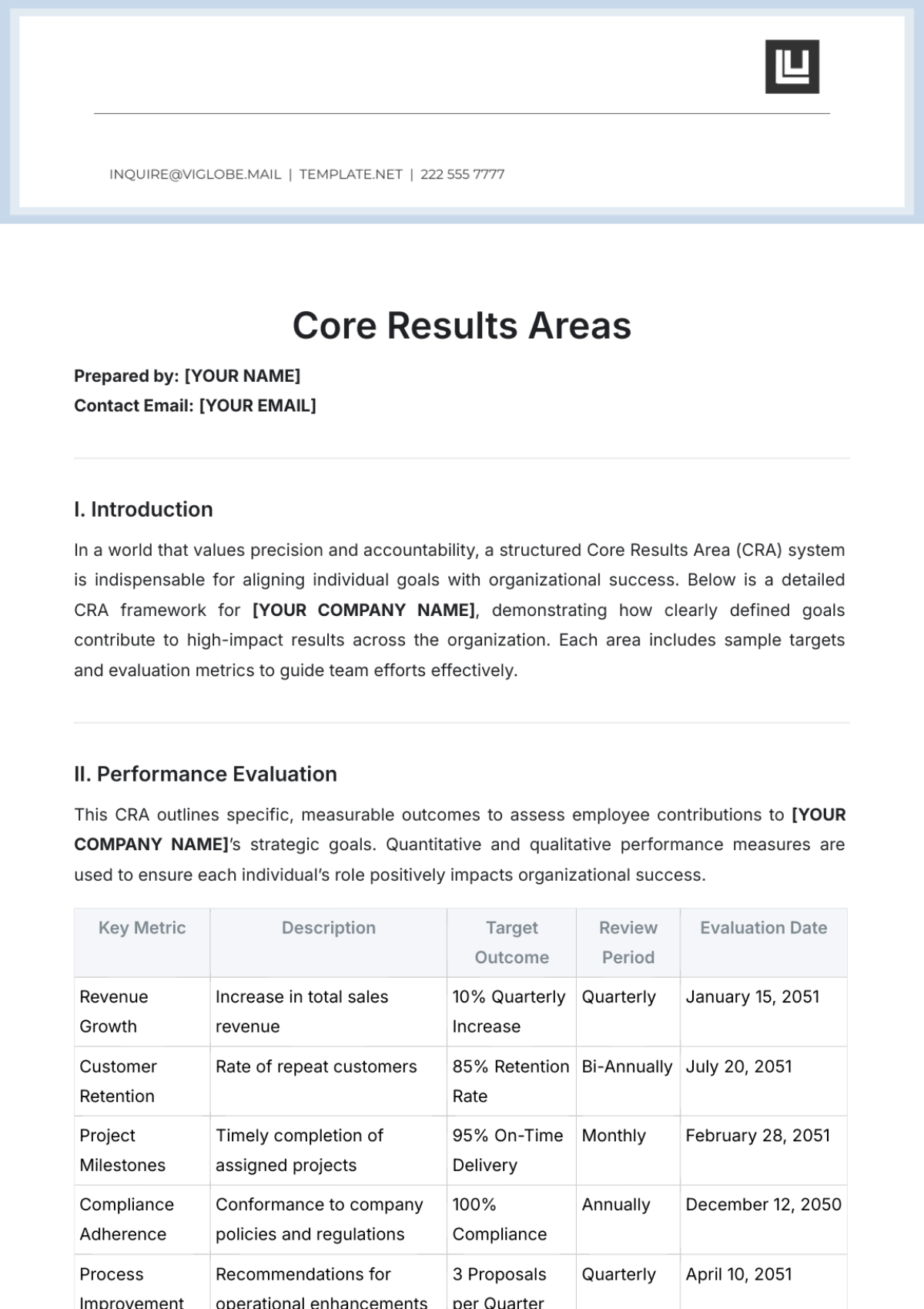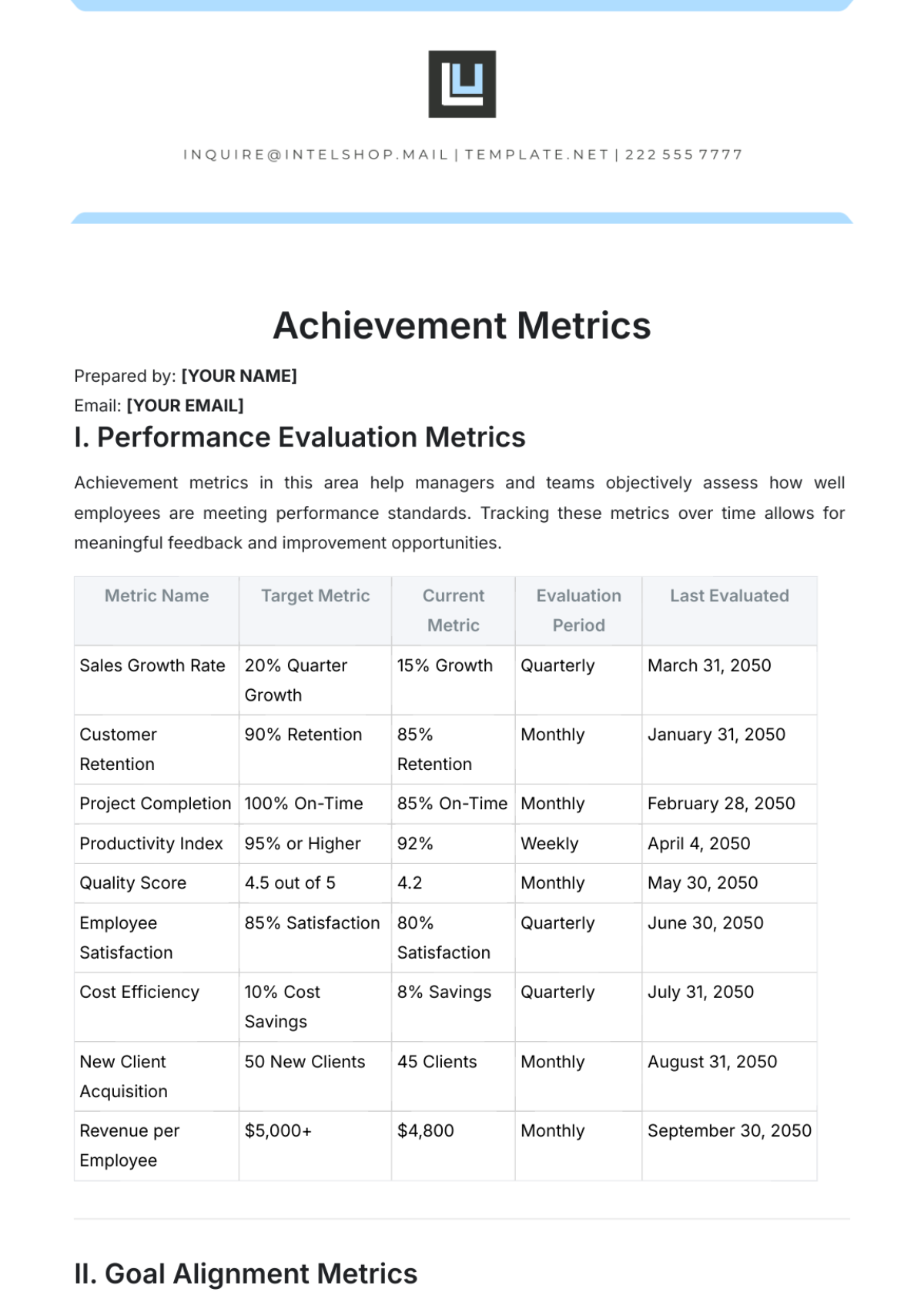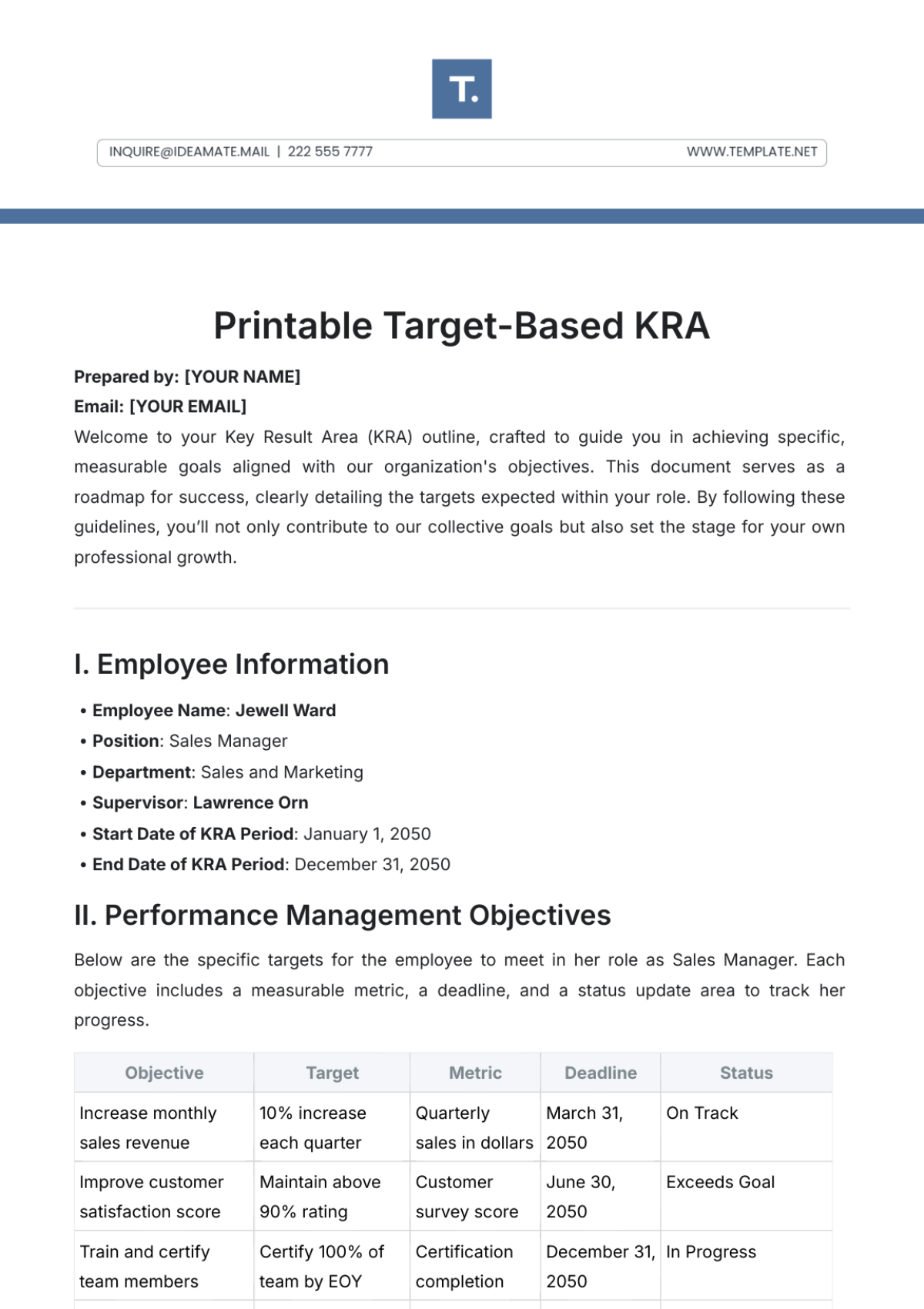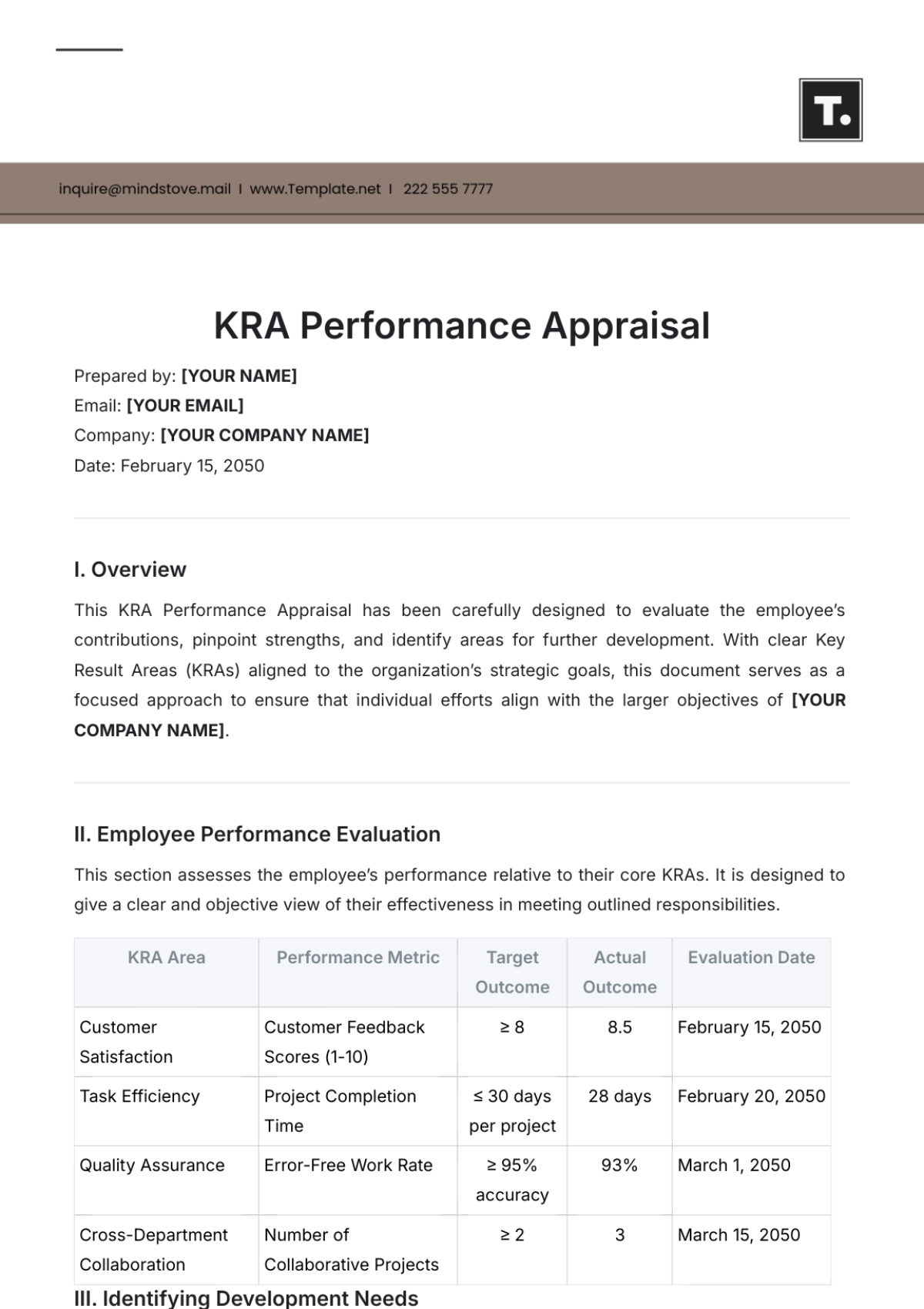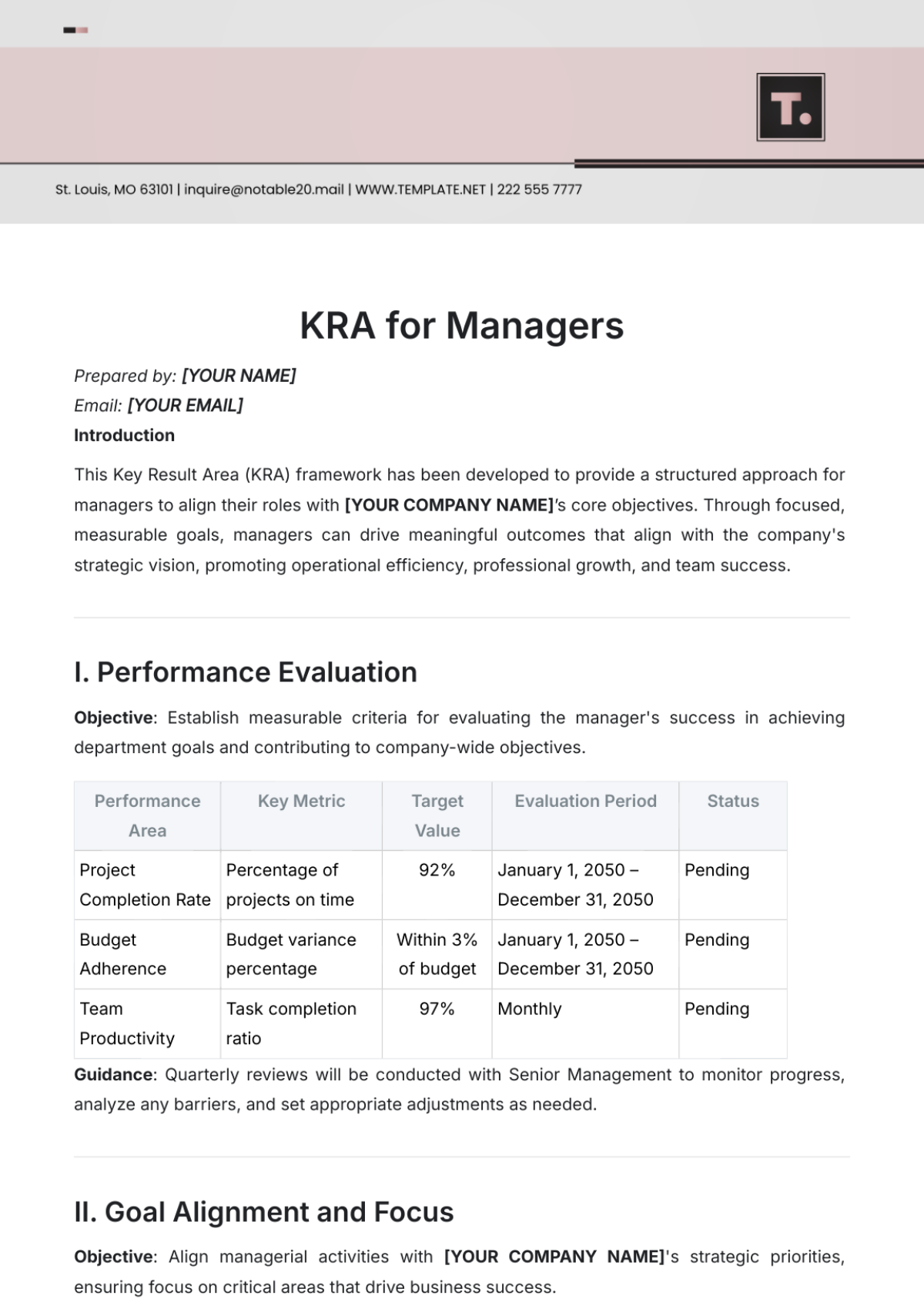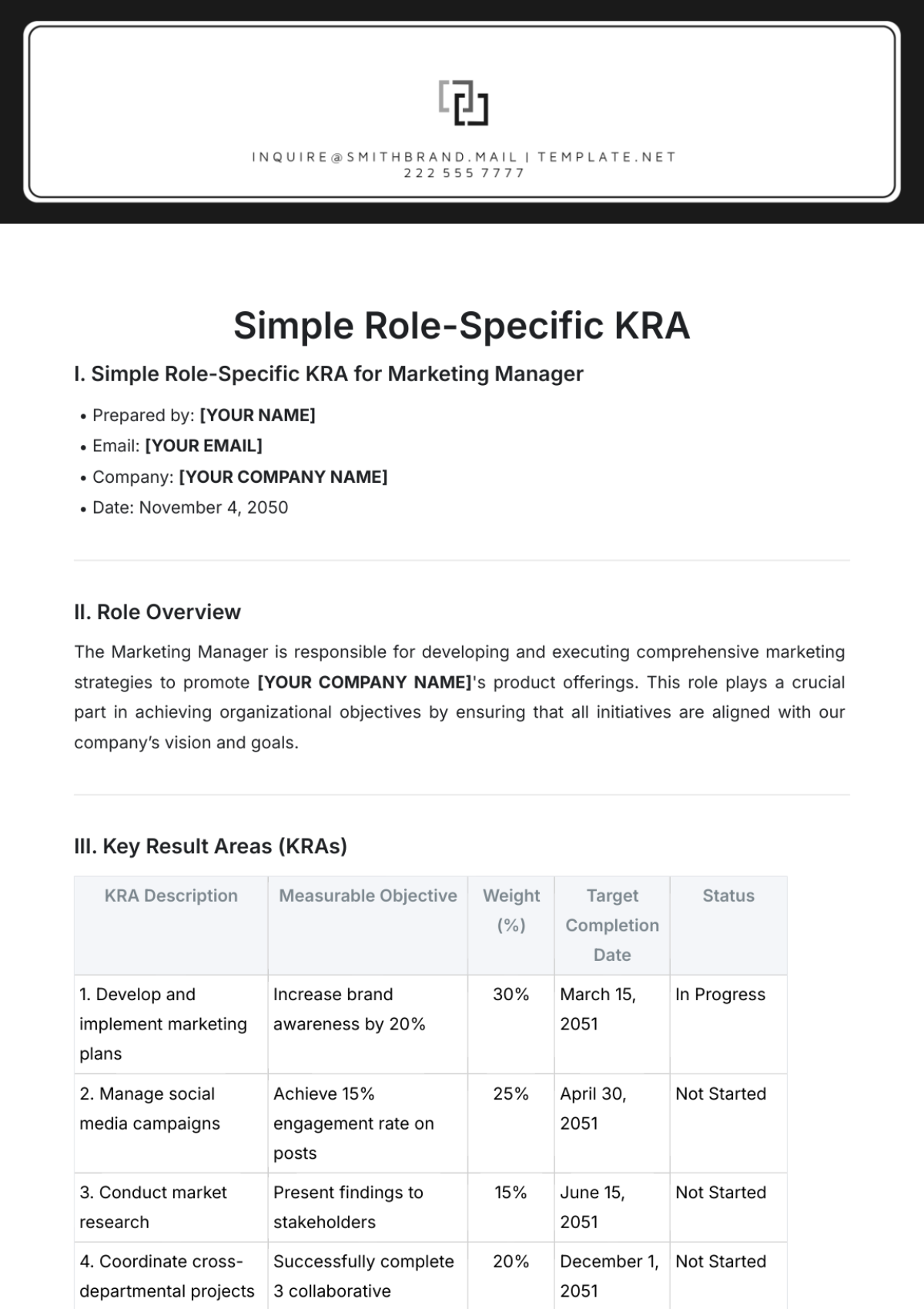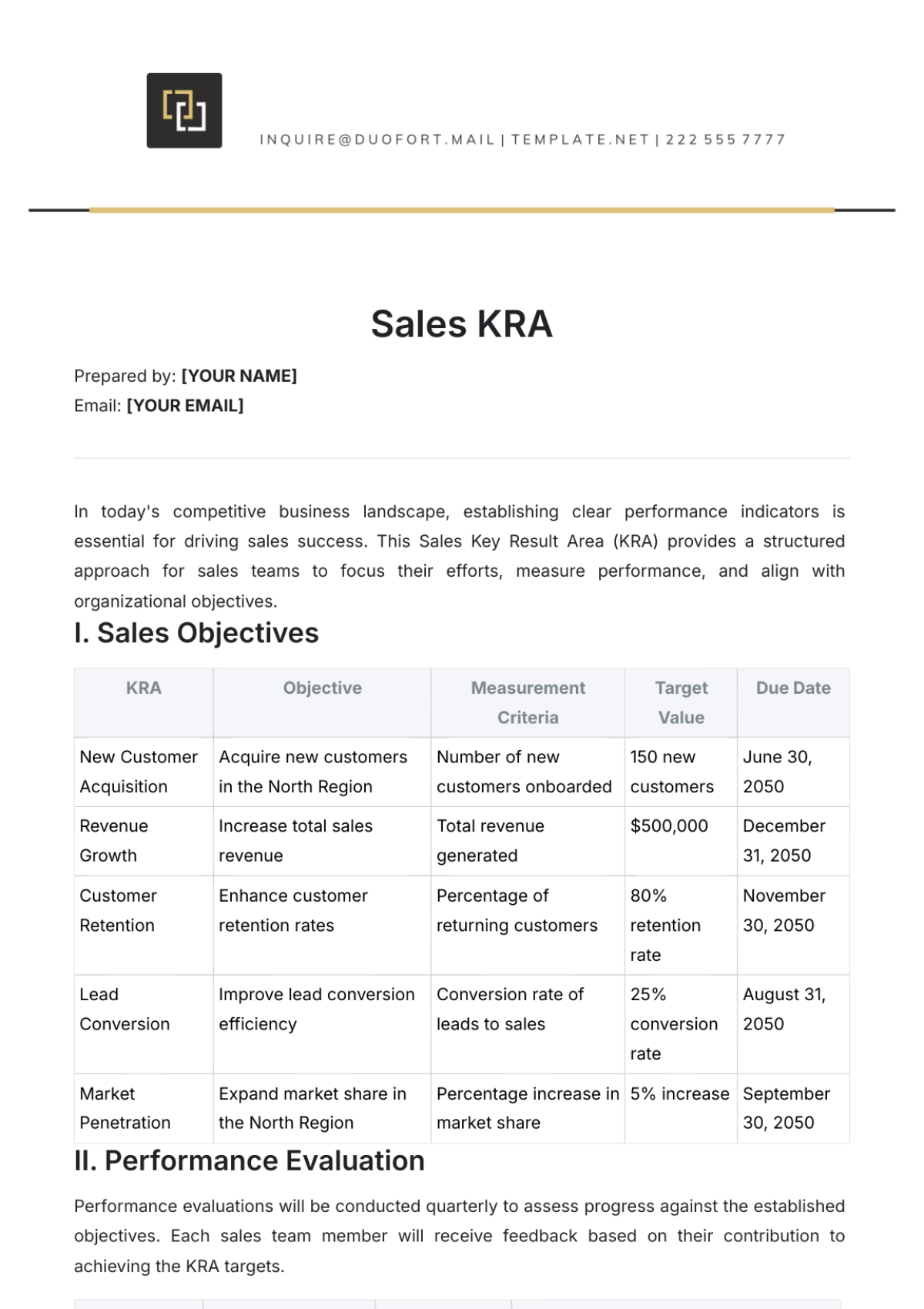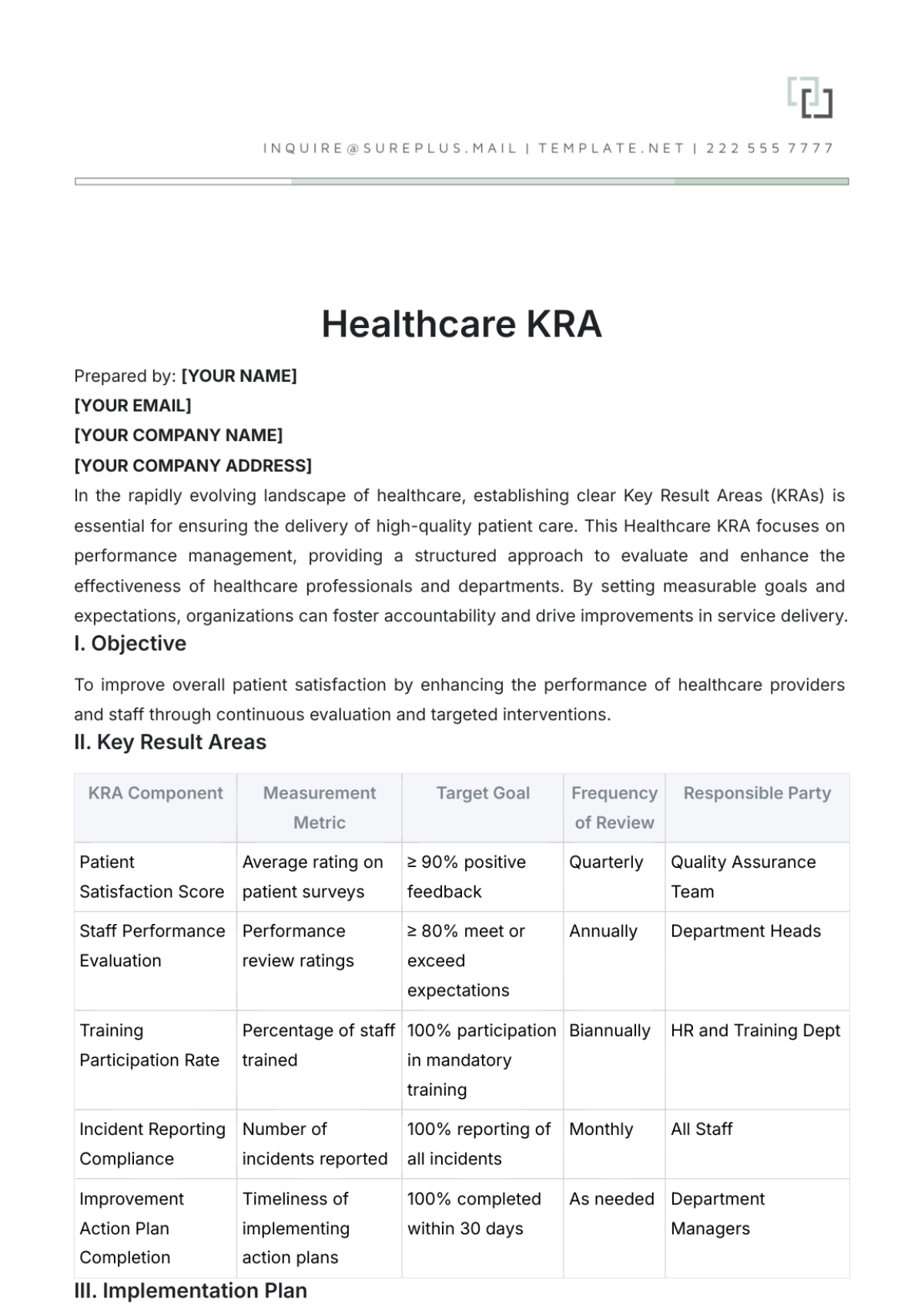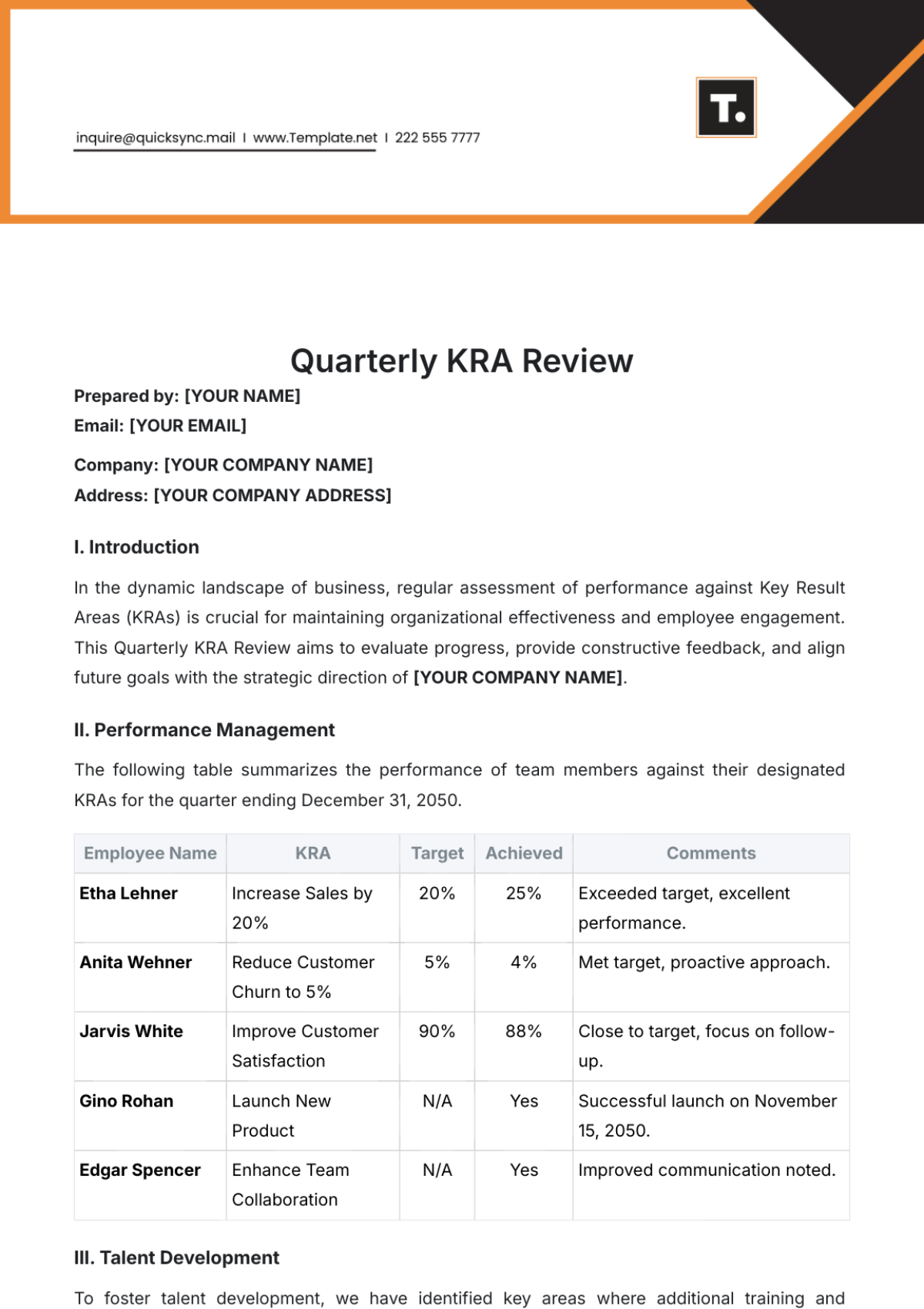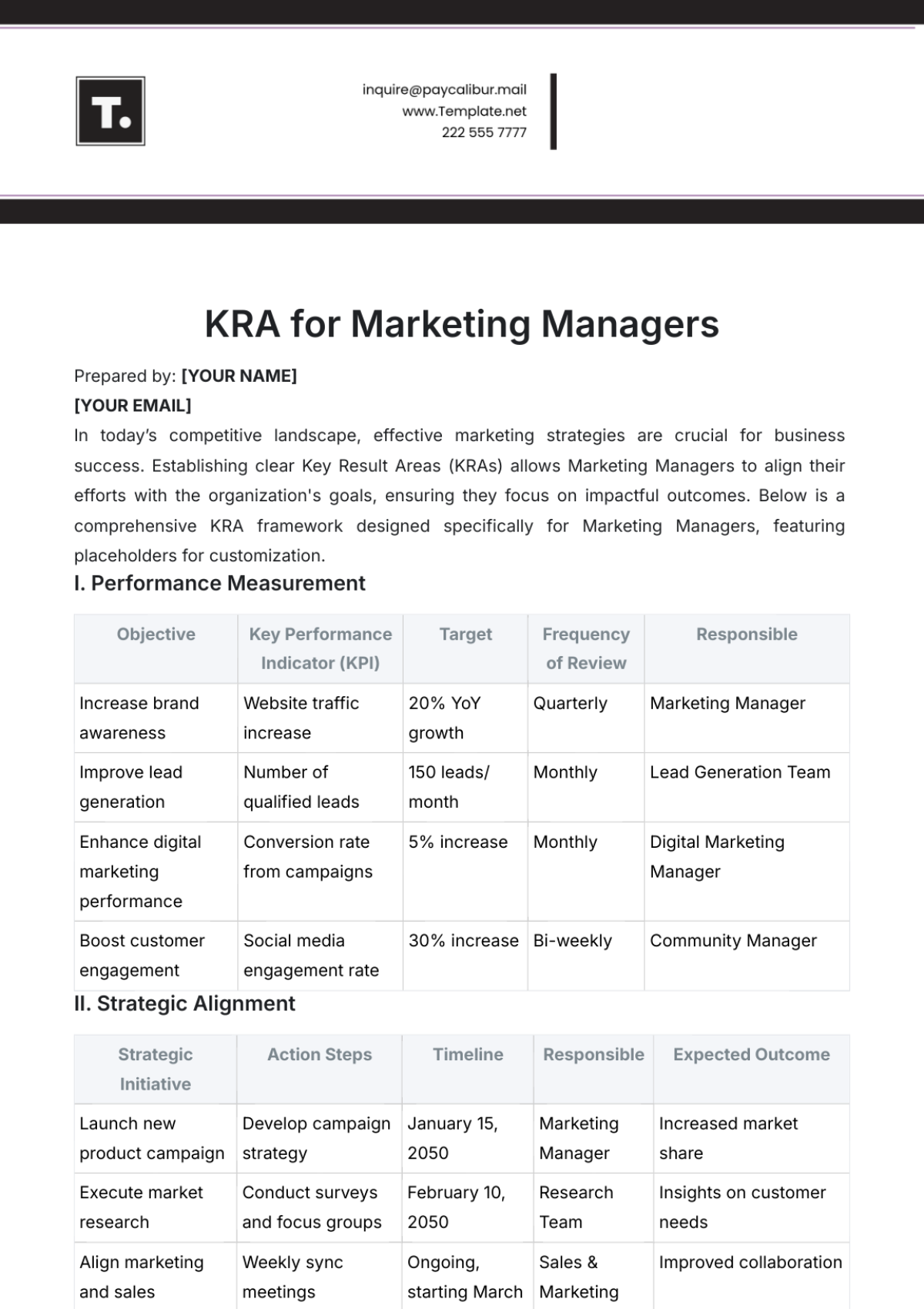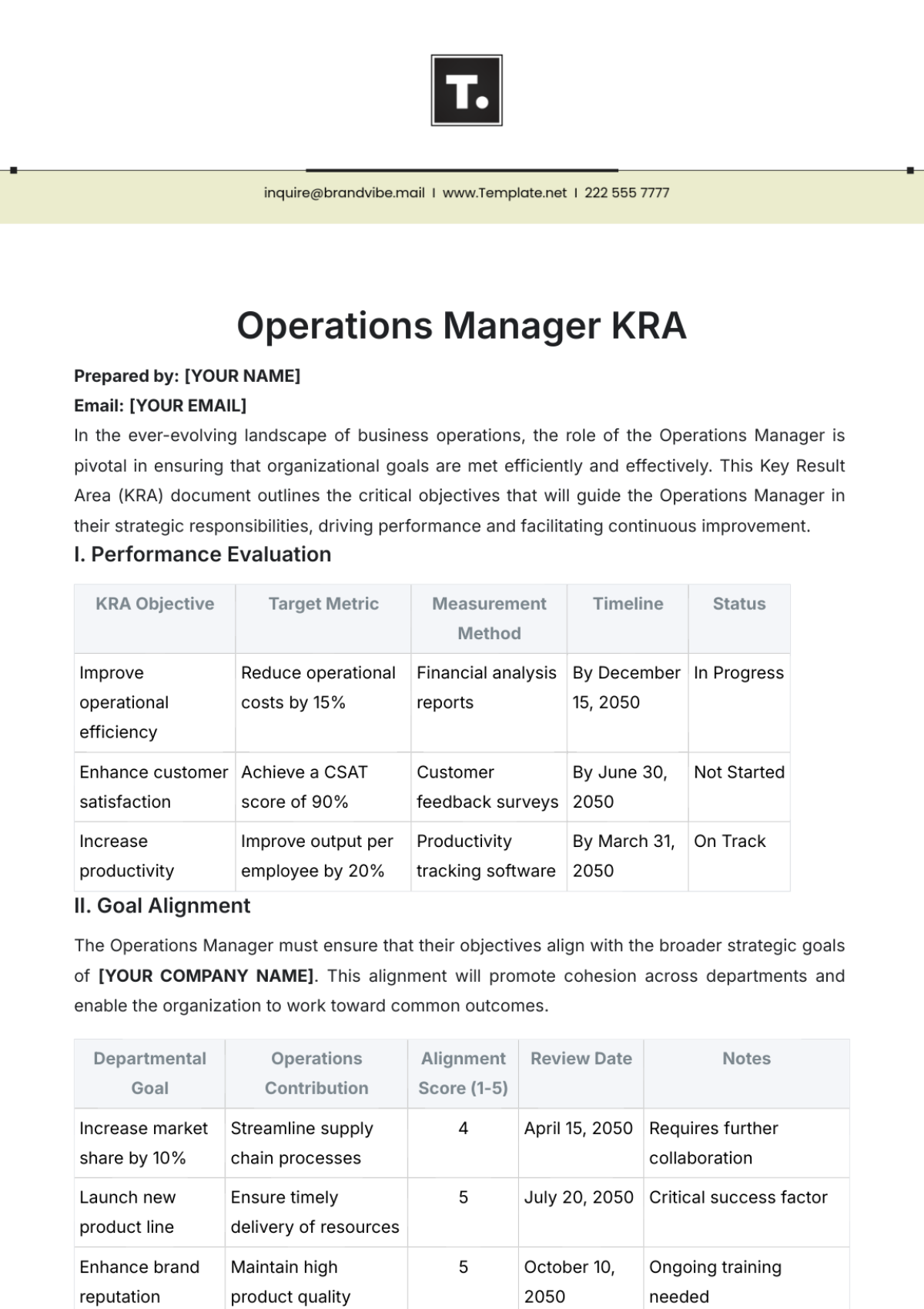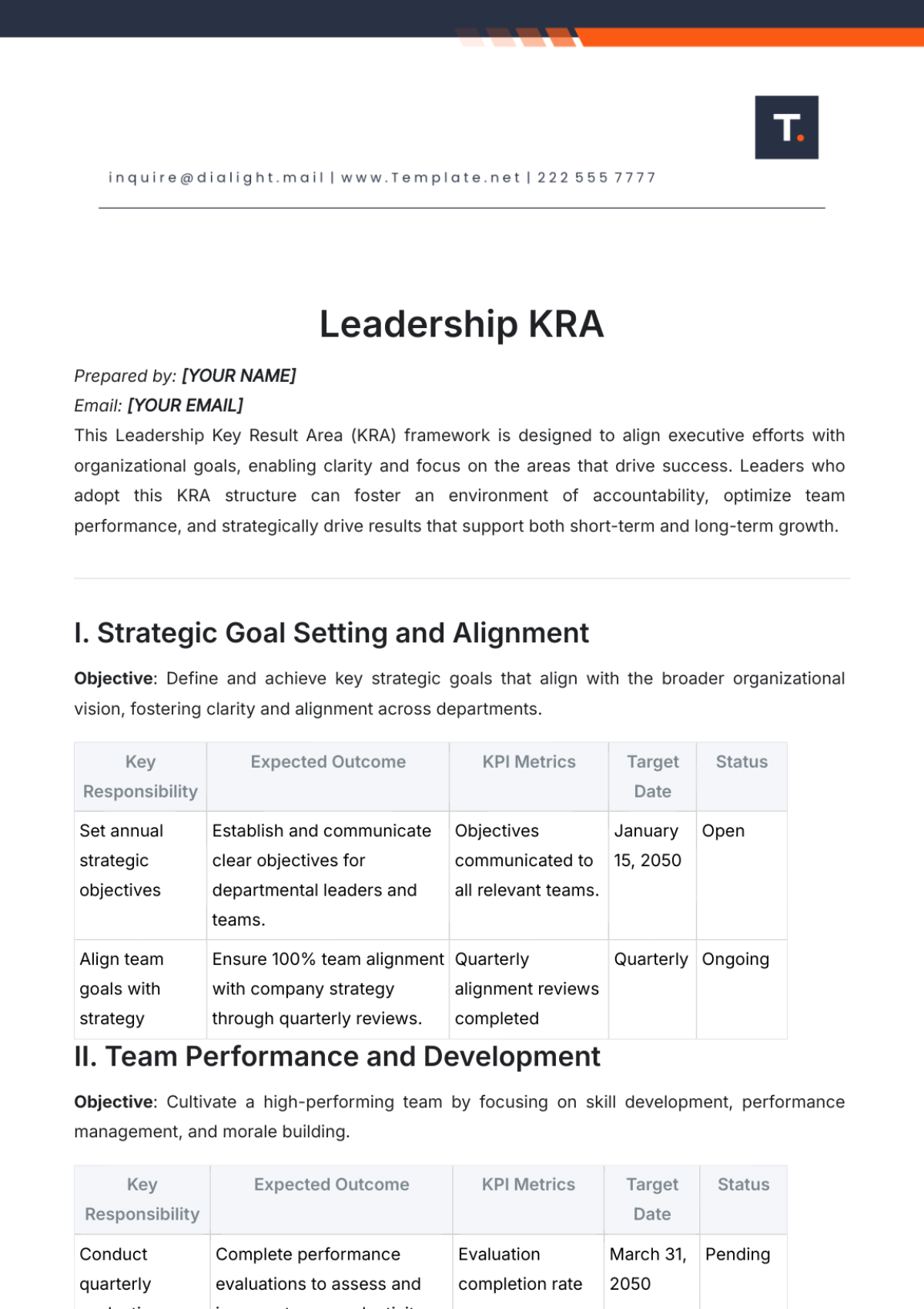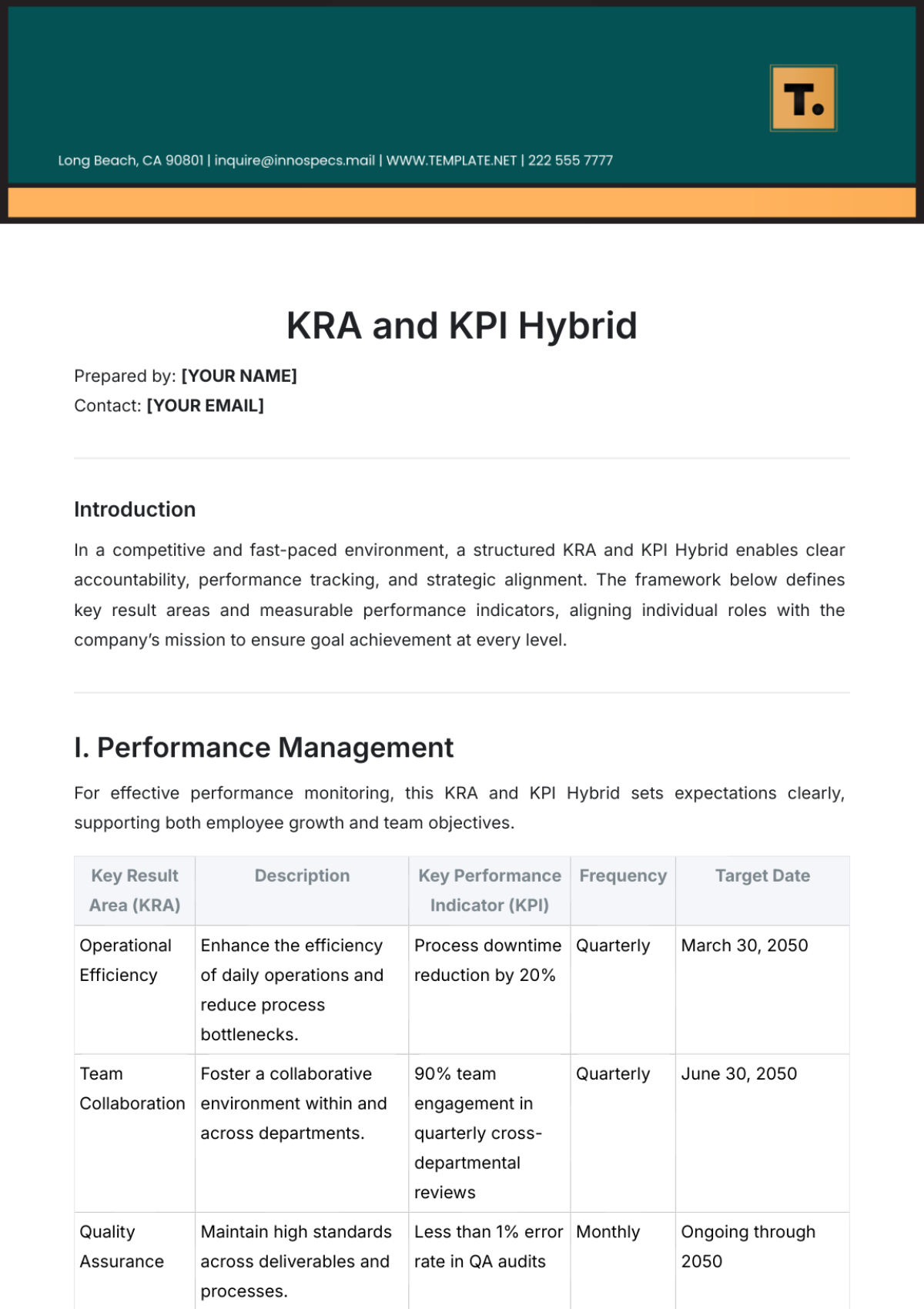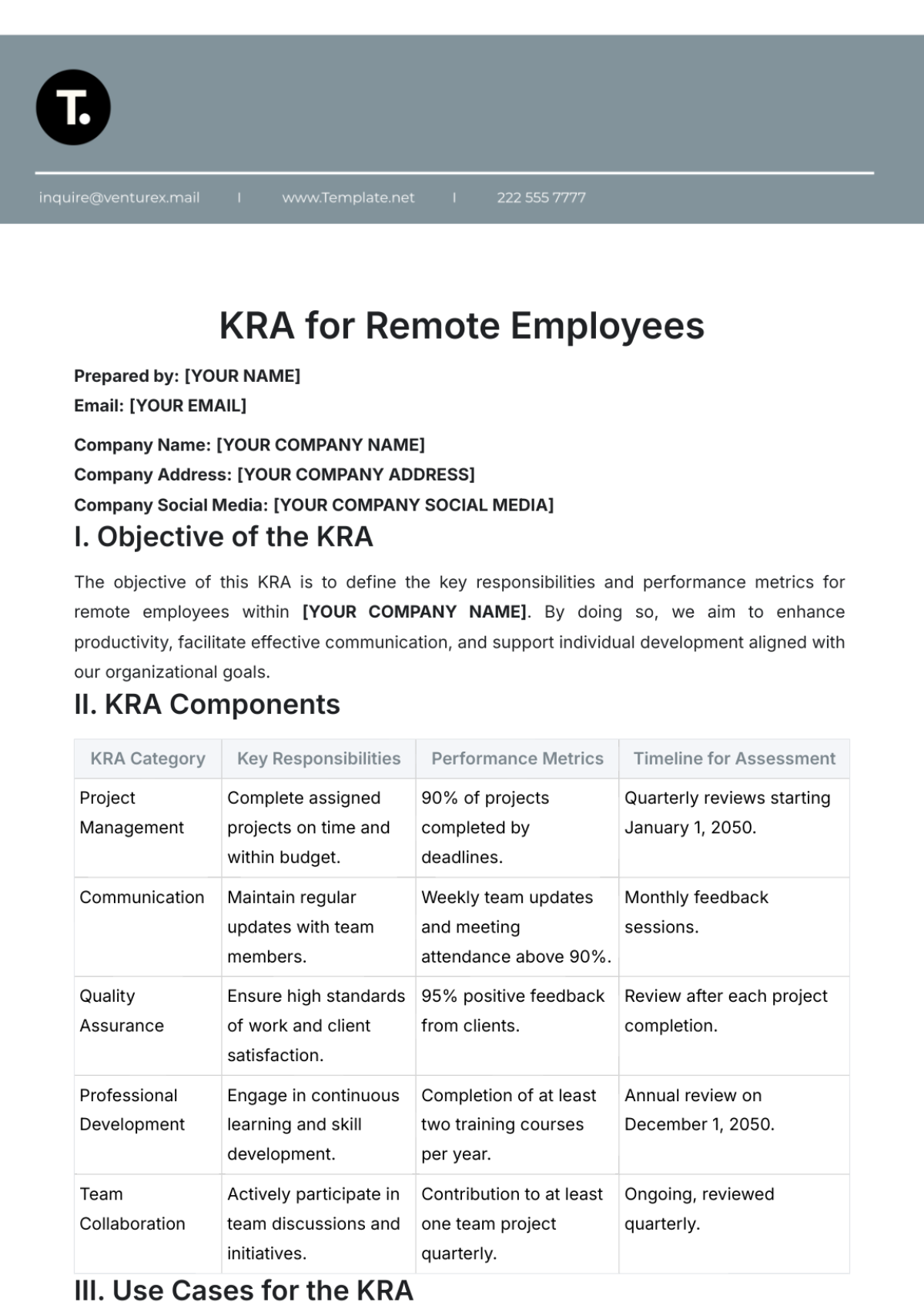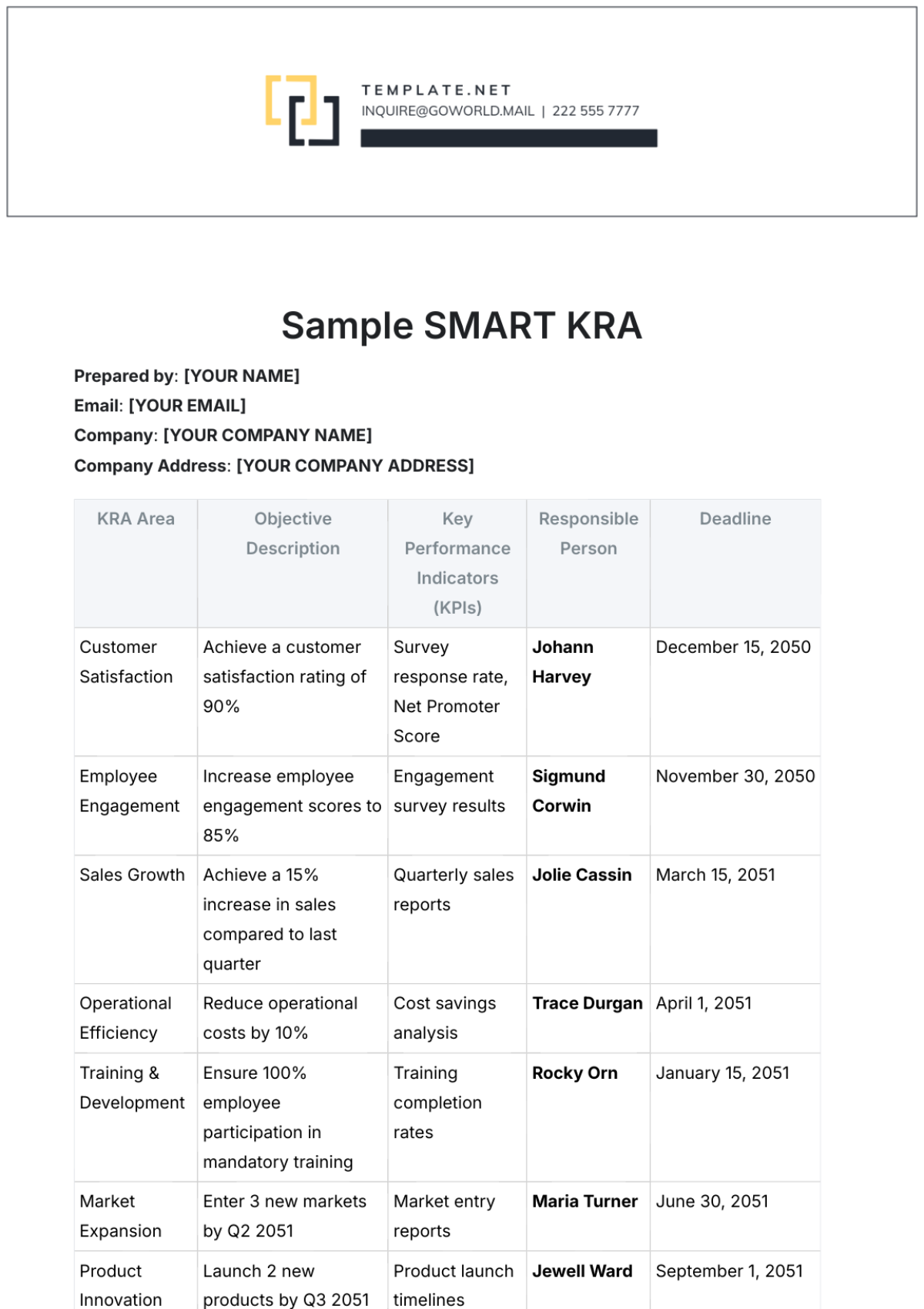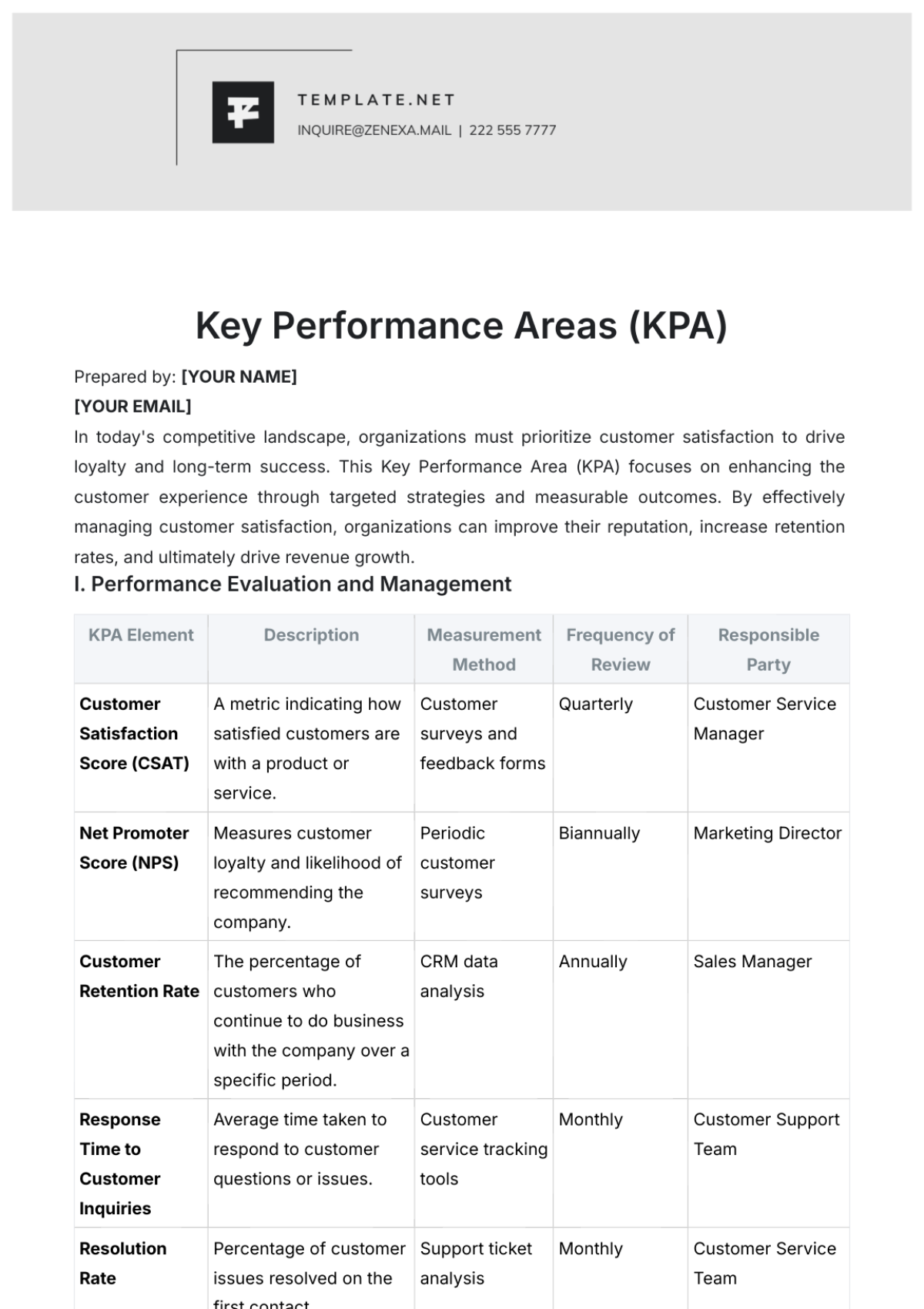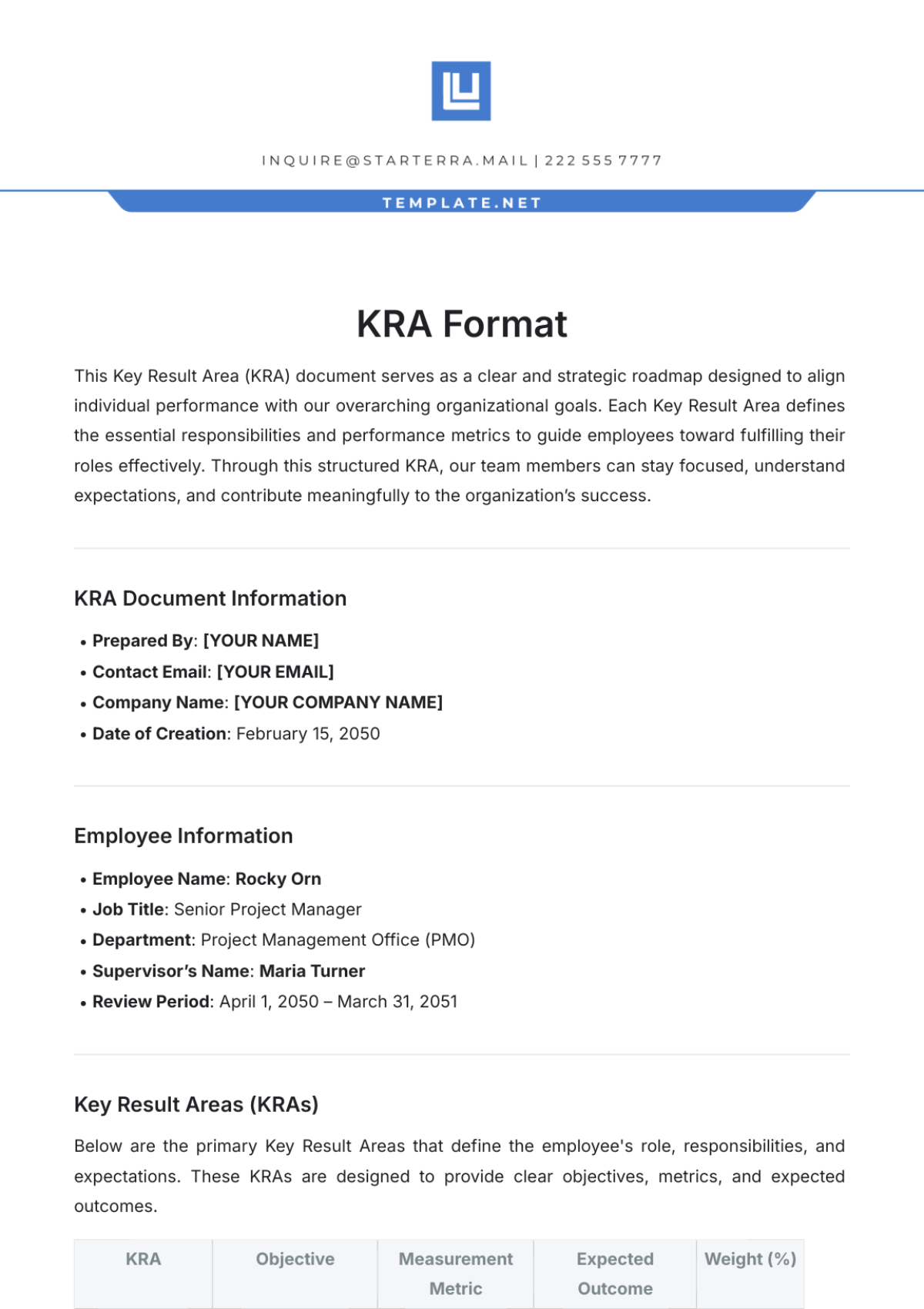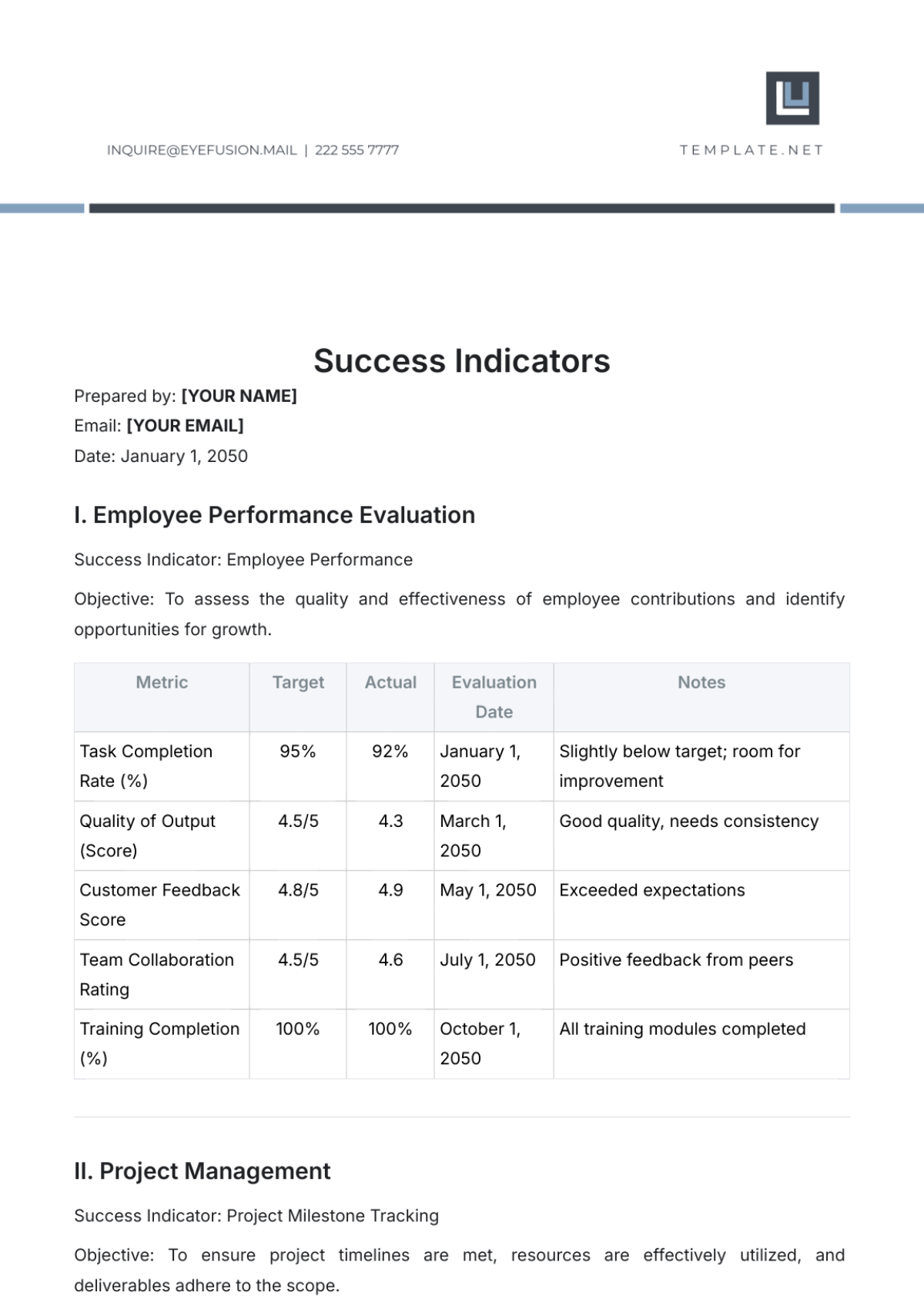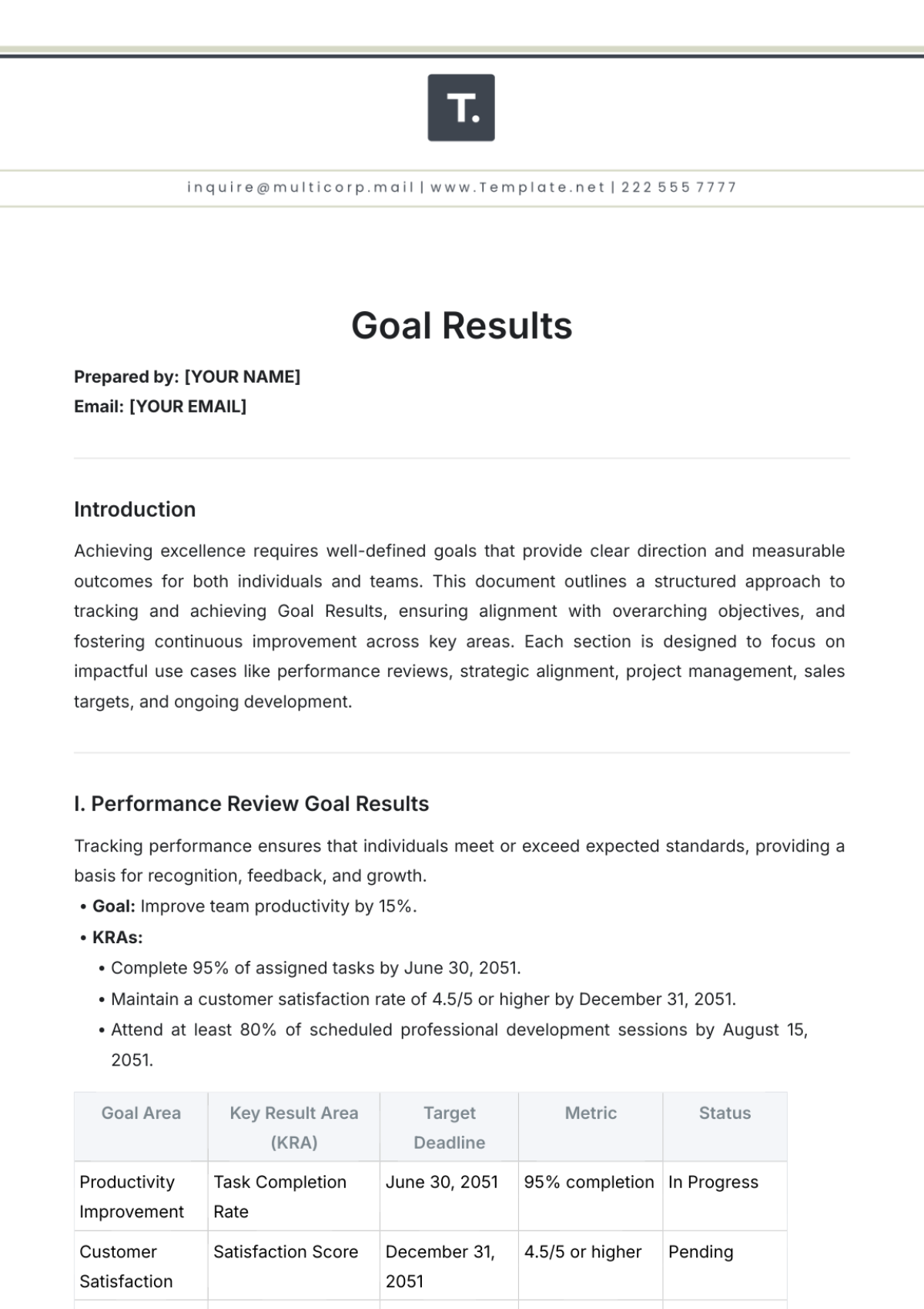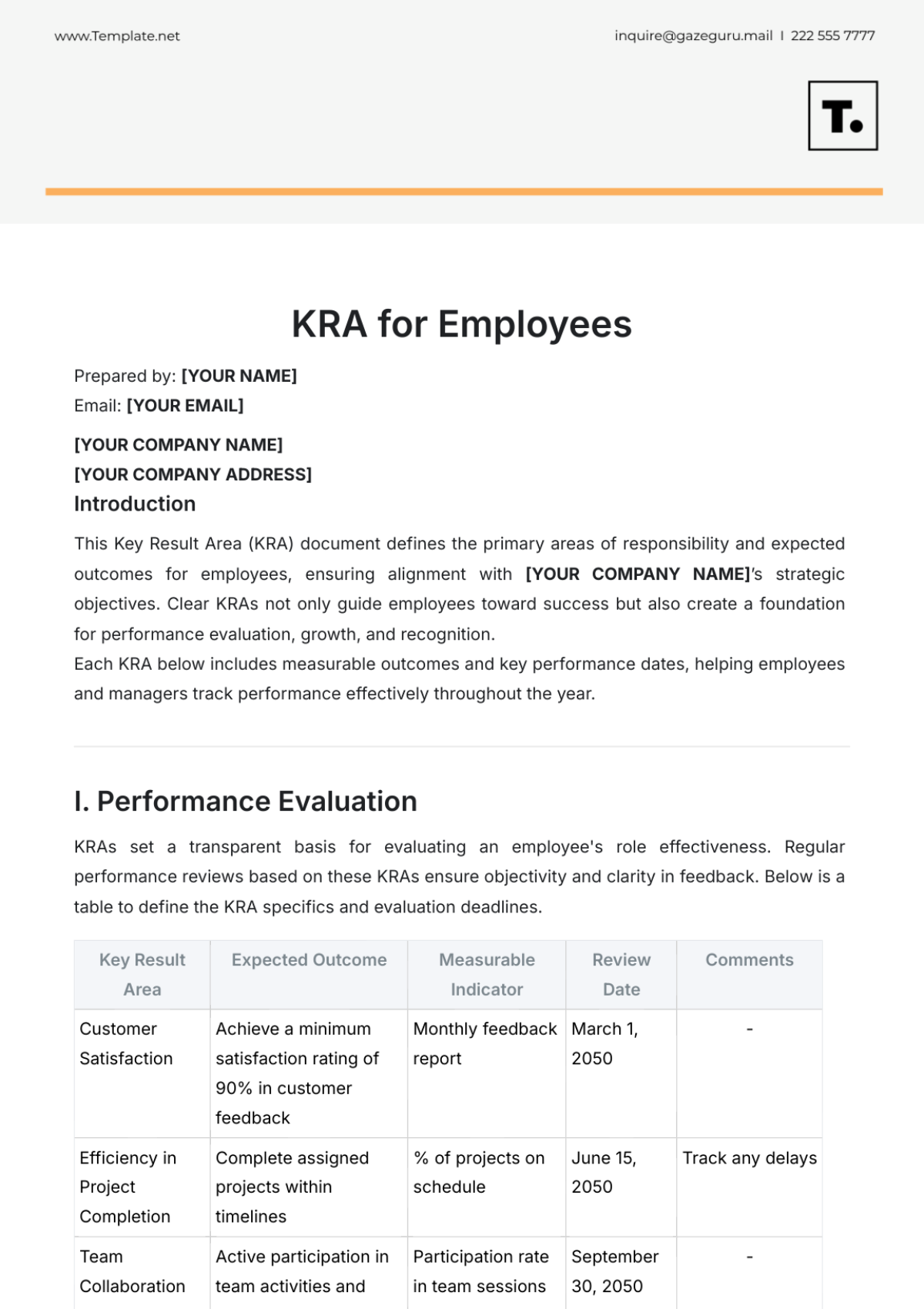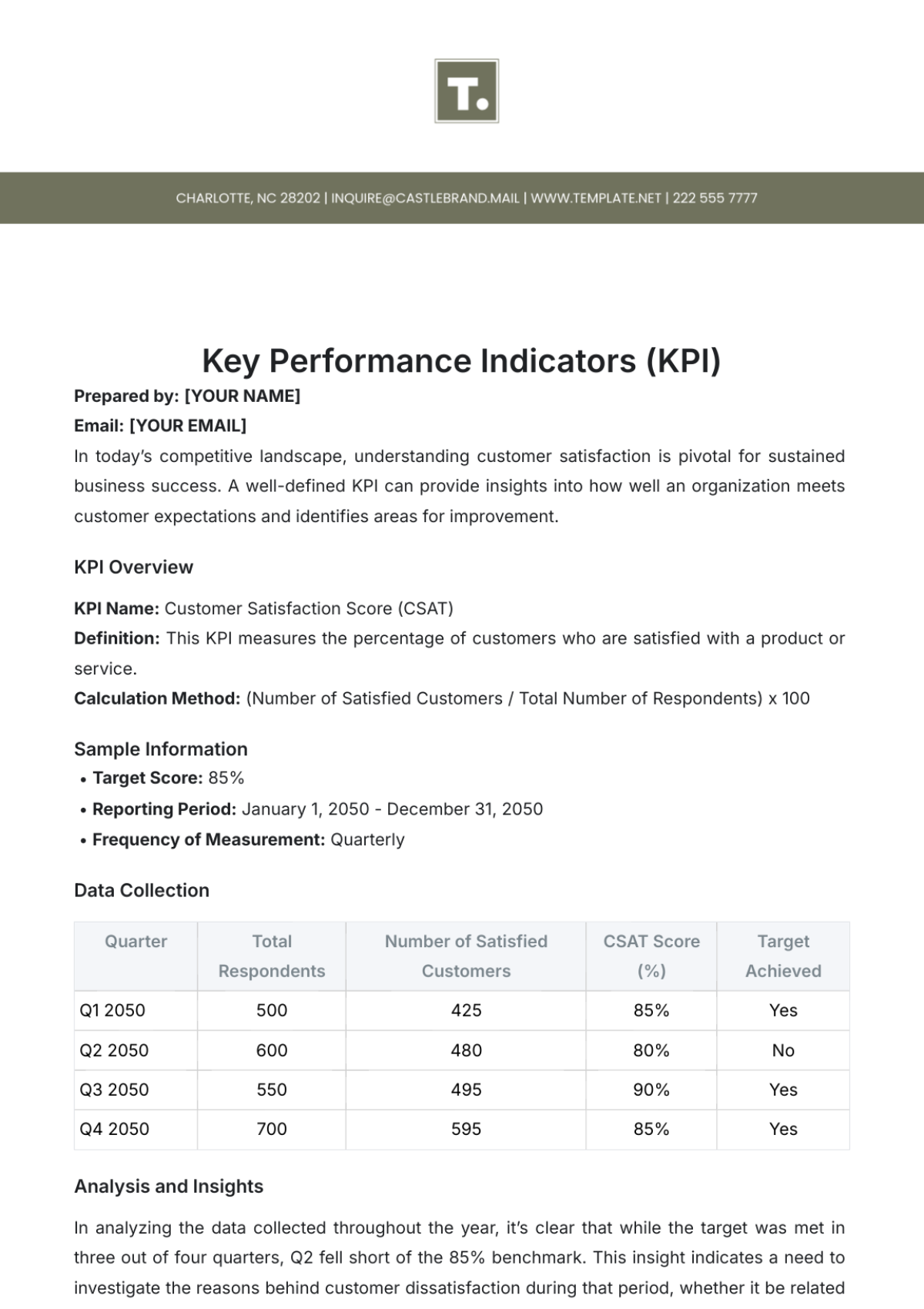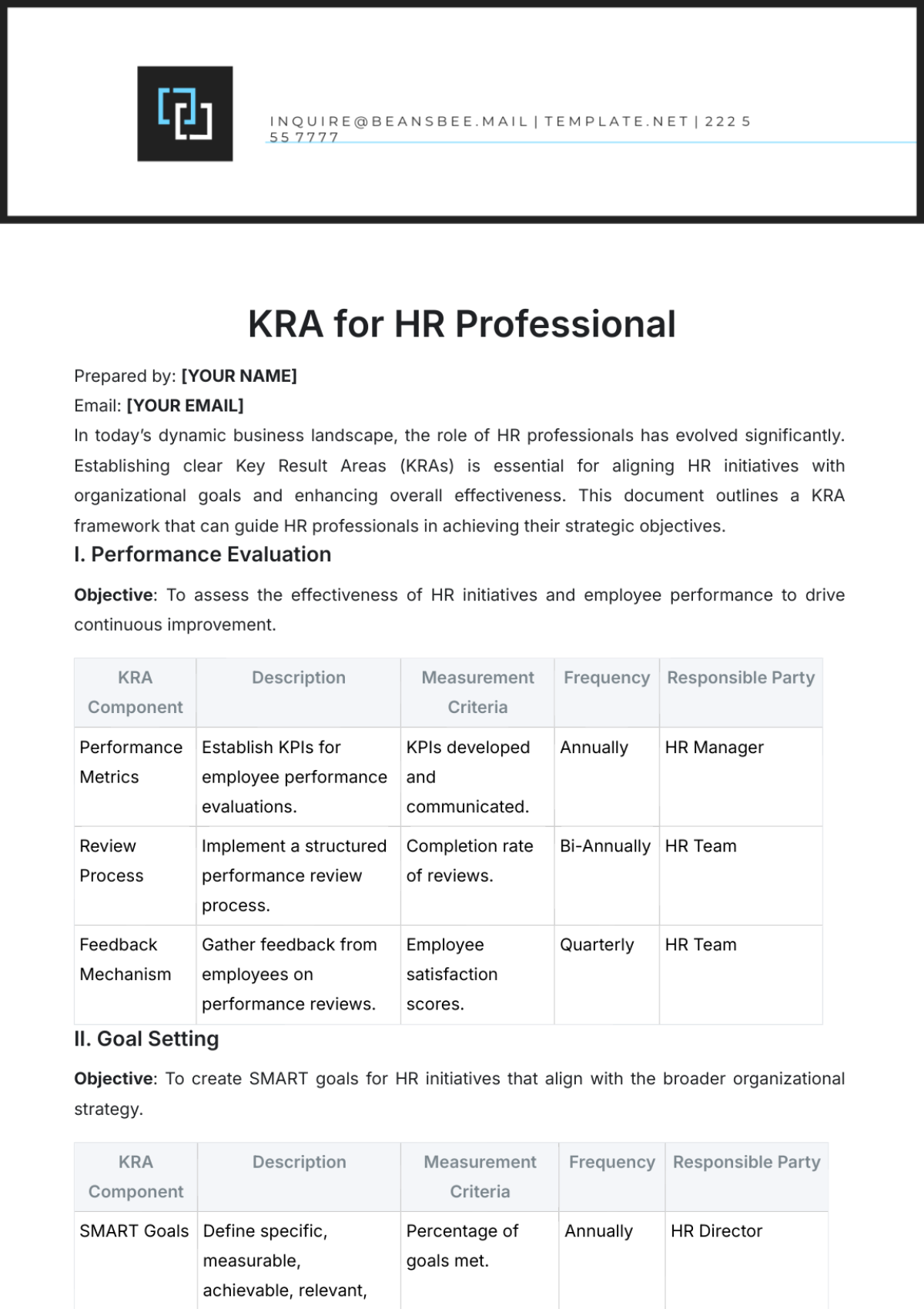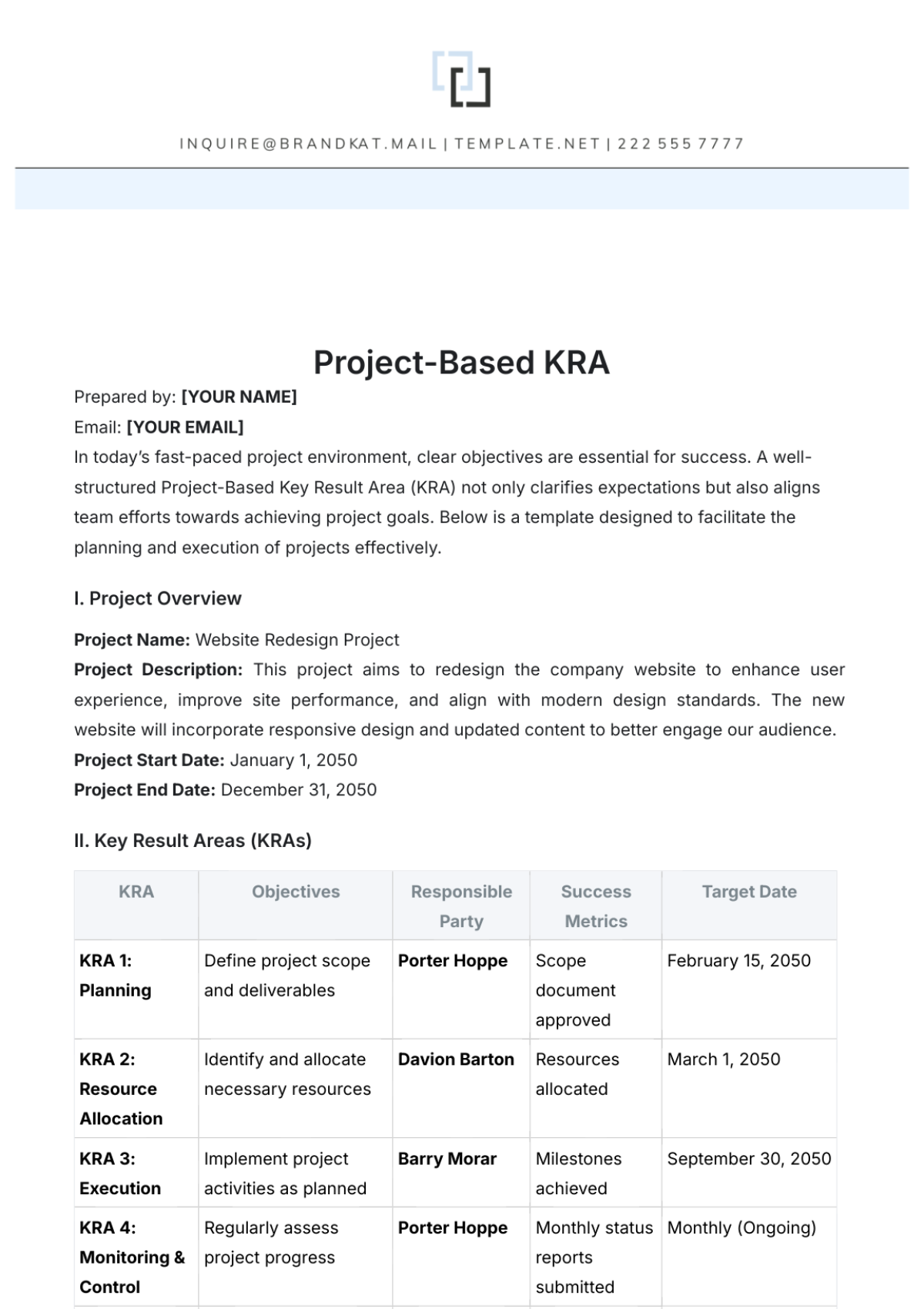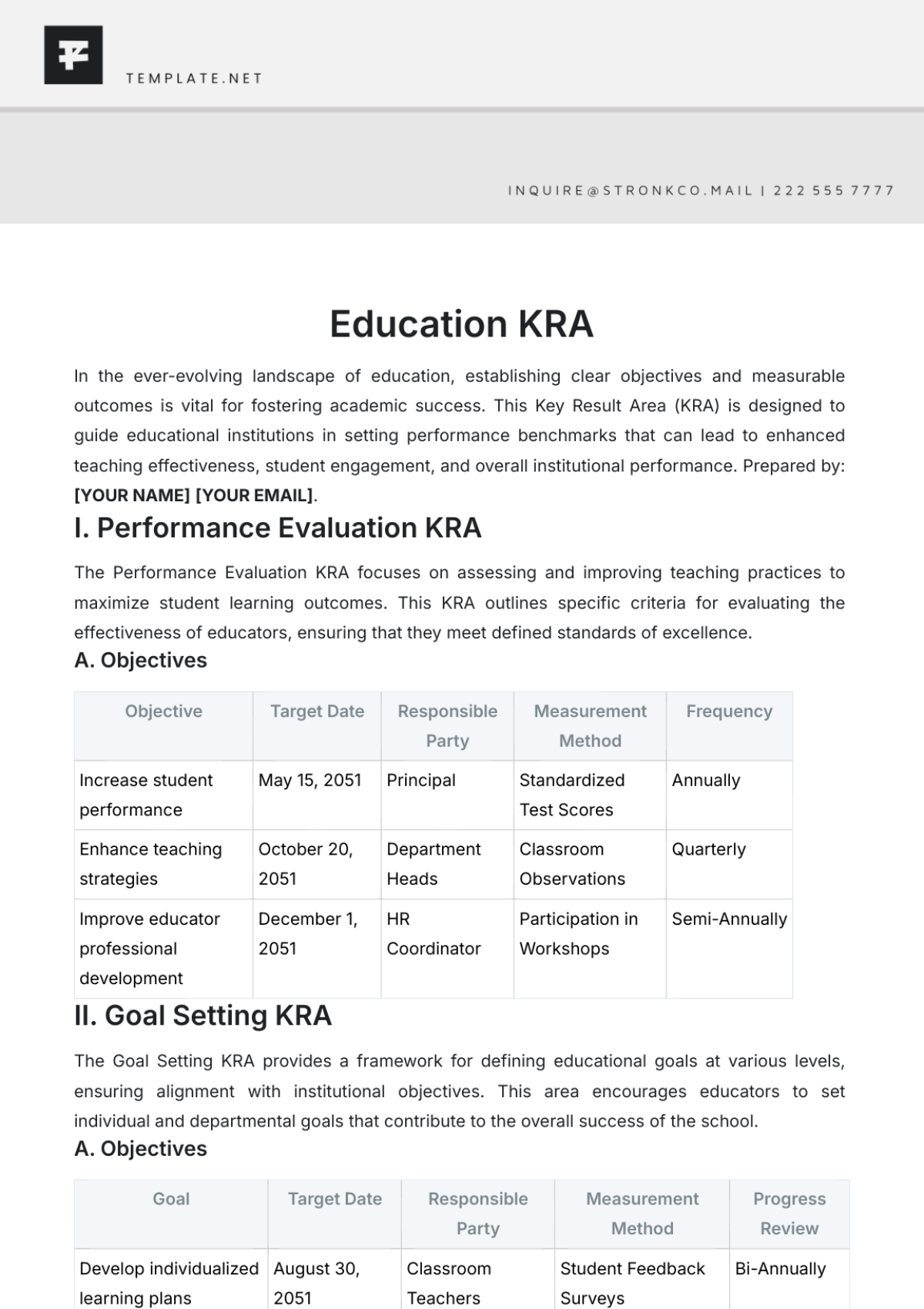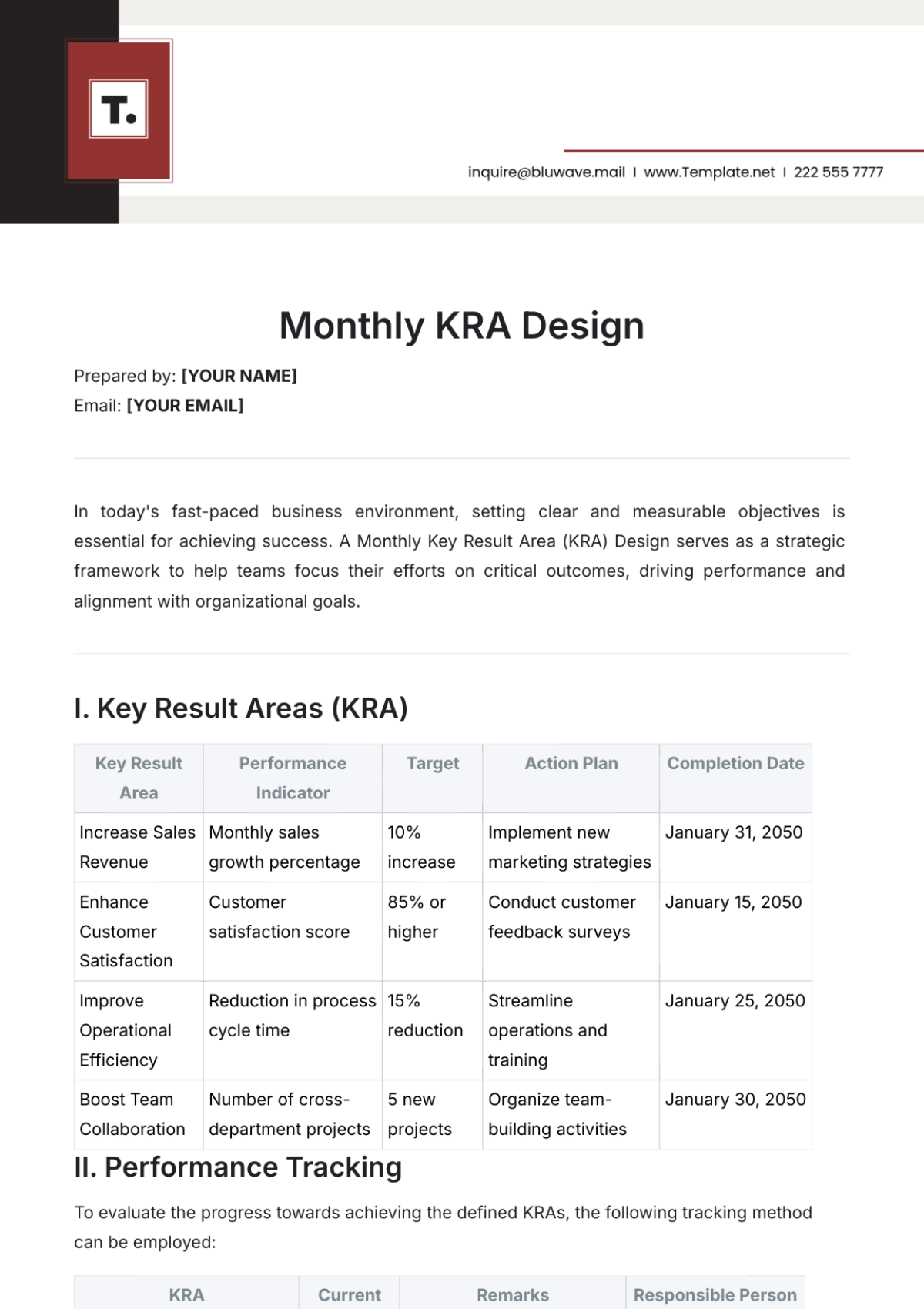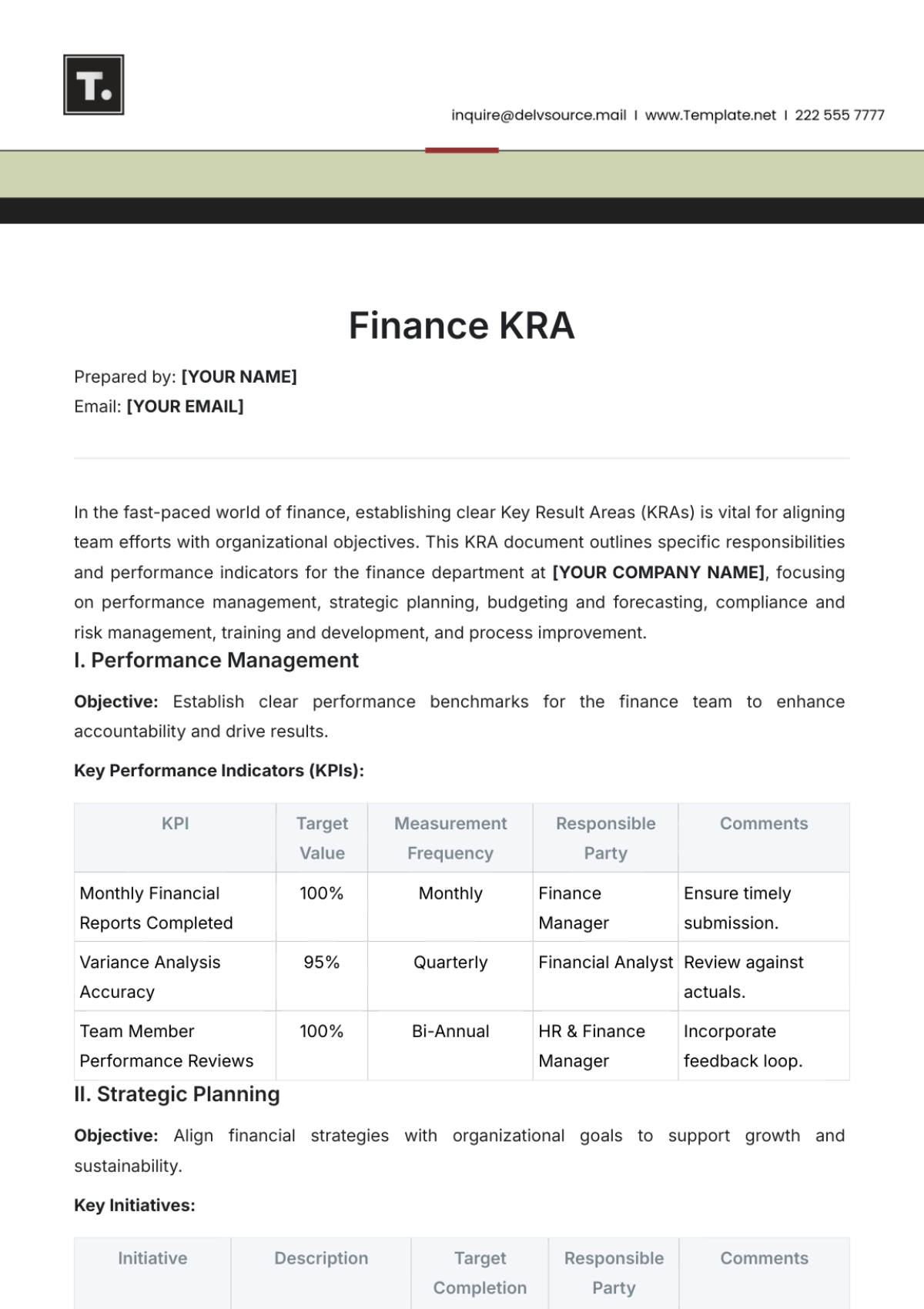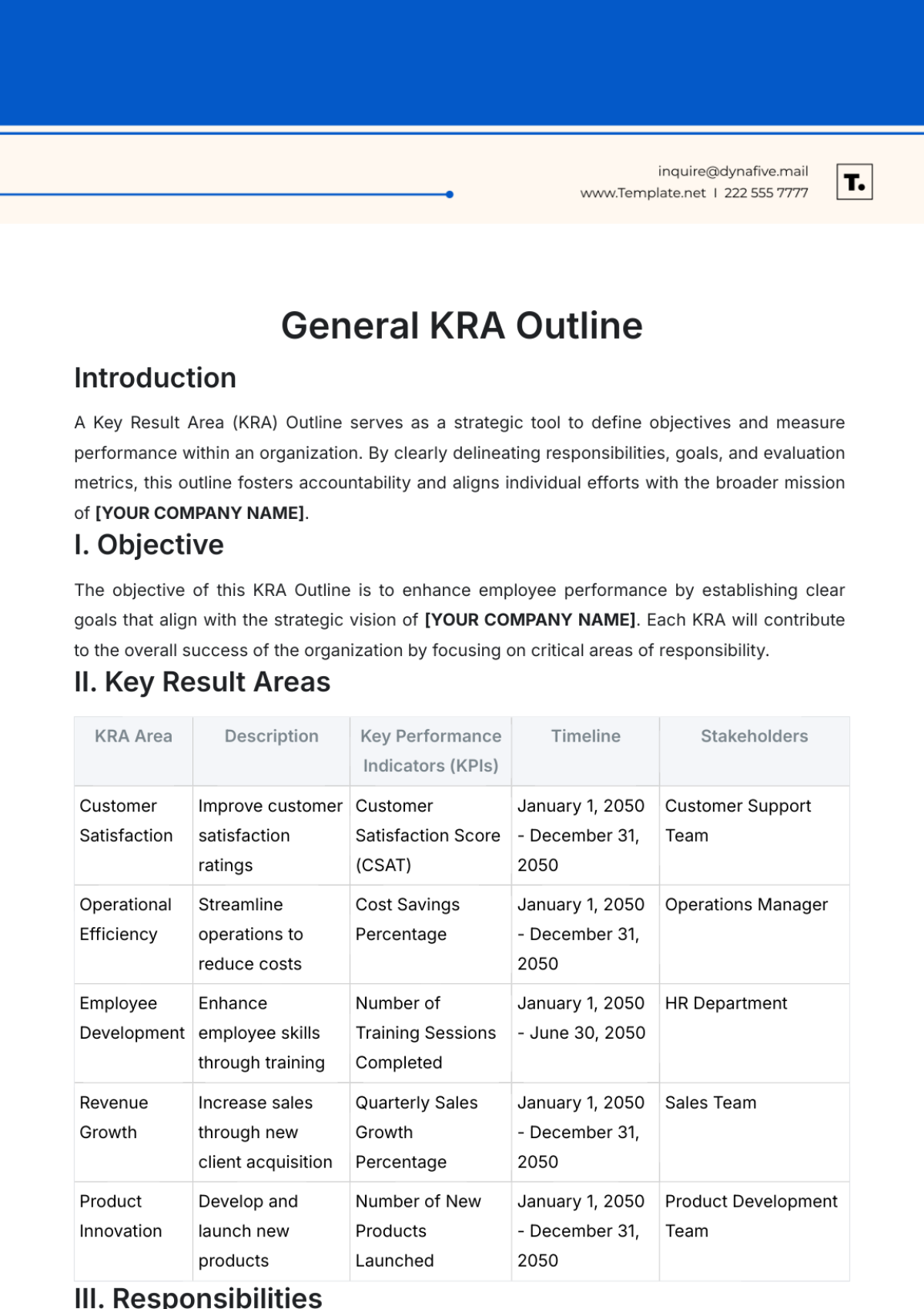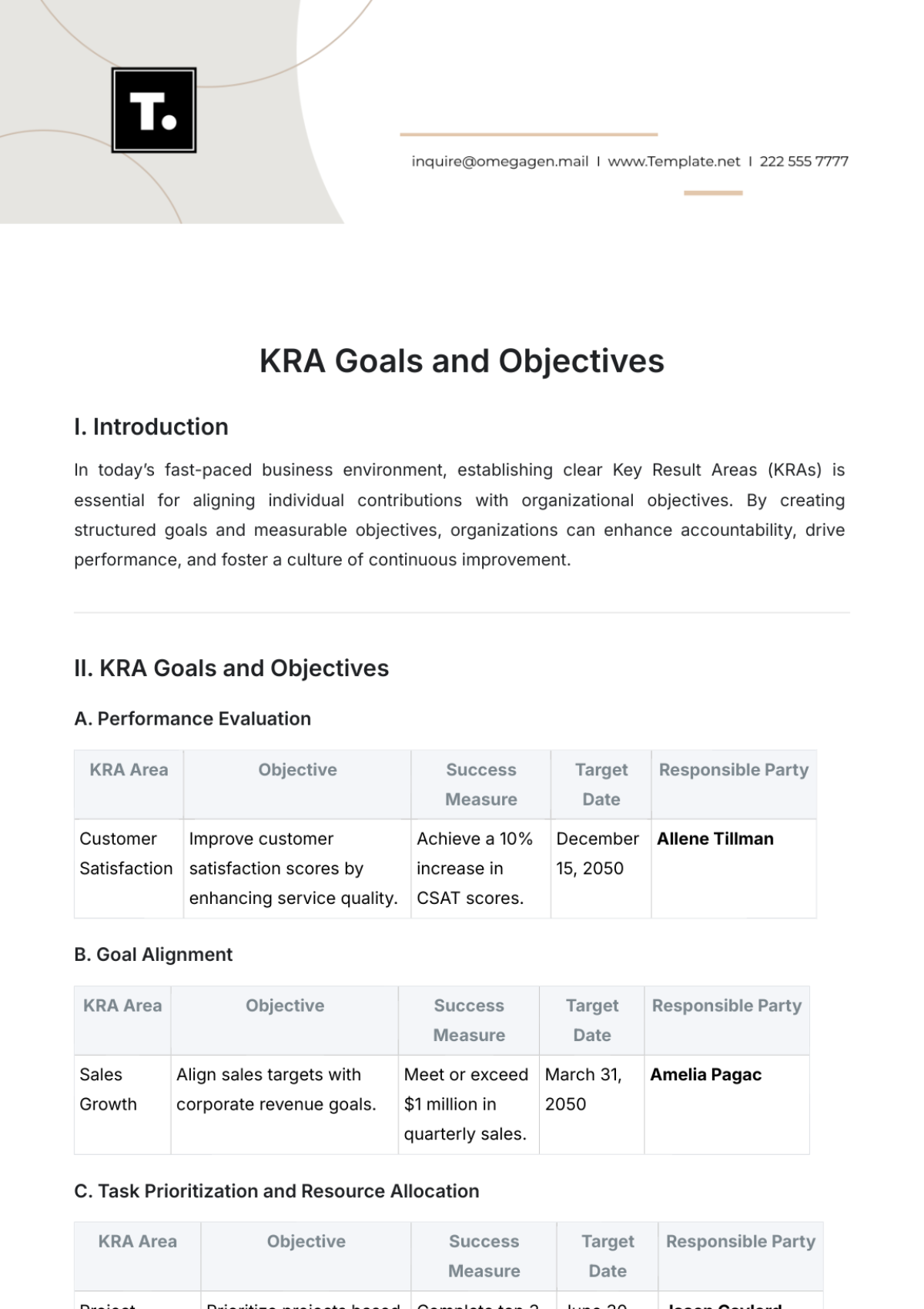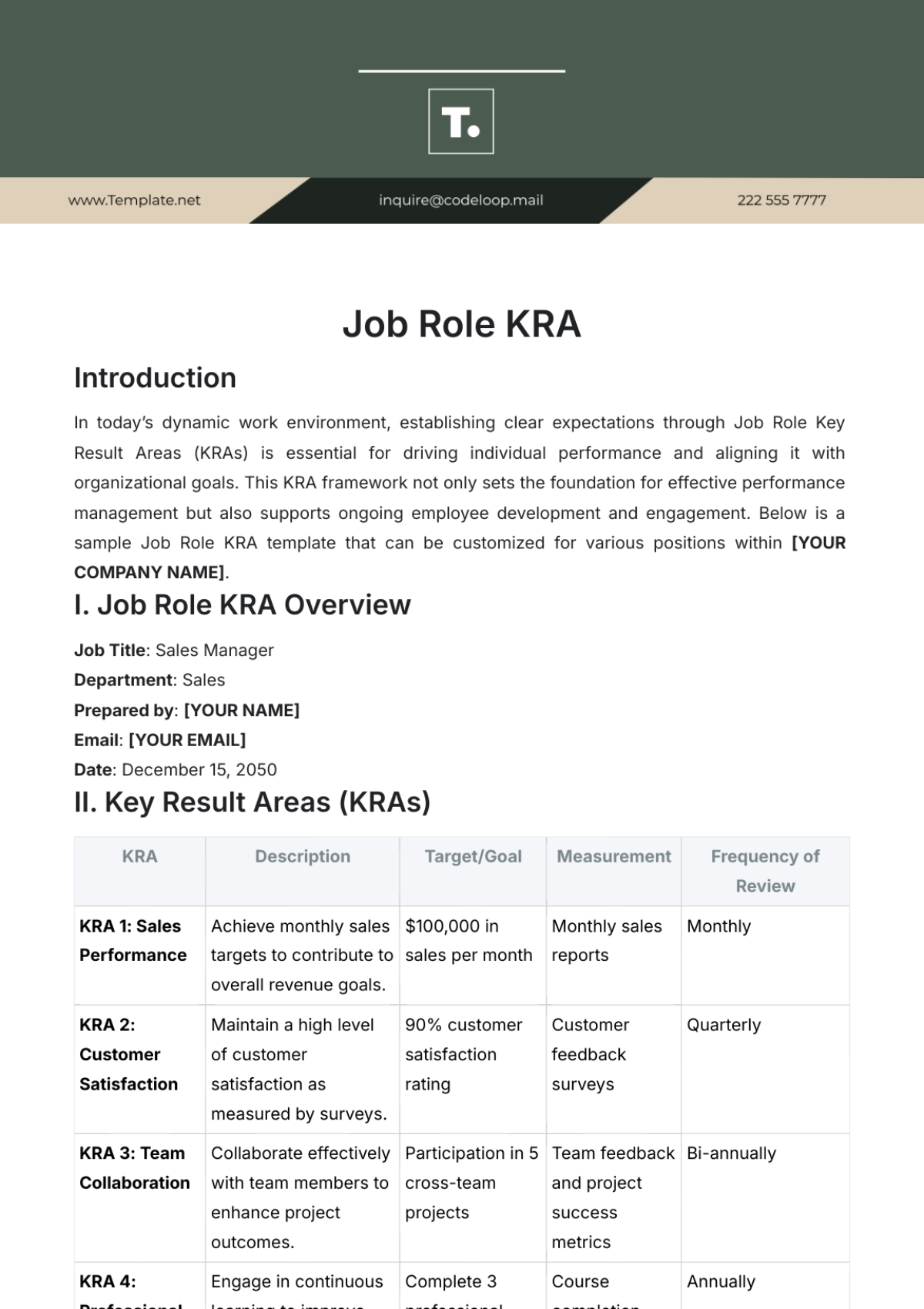Sample SMART KRA
Prepared by: [YOUR NAME]
Email: [YOUR EMAIL]
Company: [YOUR COMPANY NAME]
Company Address: [YOUR COMPANY ADDRESS]
KRA Area | Objective Description | Key Performance Indicators (KPIs) | Responsible Person | Deadline |
|---|---|---|---|---|
Customer Satisfaction | Achieve a customer satisfaction rating of 90% | Survey response rate, Net Promoter Score | Johann Harvey | December 15, 2050 |
Employee Engagement | Increase employee engagement scores to 85% | Engagement survey results | Sigmund Corwin | November 30, 2050 |
Sales Growth | Achieve a 15% increase in sales compared to last quarter | Quarterly sales reports | Jolie Cassin | March 15, 2051 |
Operational Efficiency | Reduce operational costs by 10% | Cost savings analysis | Trace Durgan | April 1, 2051 |
Training & Development | Ensure 100% employee participation in mandatory training | Training completion rates | Rocky Orn | January 15, 2051 |
Market Expansion | Enter 3 new markets by Q2 2051 | Market entry reports | Maria Turner | June 30, 2051 |
Product Innovation | Launch 2 new products by Q3 2051 | Product launch timelines | Jewell Ward | September 1, 2051 |
Customer Retention | Increase customer retention rate to 80% | Retention rates, Customer lifetime value | Lawrence Orn | October 15, 2051 |
Quality Improvement | Achieve a defect rate of less than 2% in products | Quality assurance reports | Clint Renner | May 1, 2051 |
This structured approach allows organizations to systematically track their progress while ensuring that all team members are aligned with the overarching goals. By implementing SMART KRAs, companies can drive performance and foster a culture of continuous improvement, leading to sustainable success in the competitive landscape.
